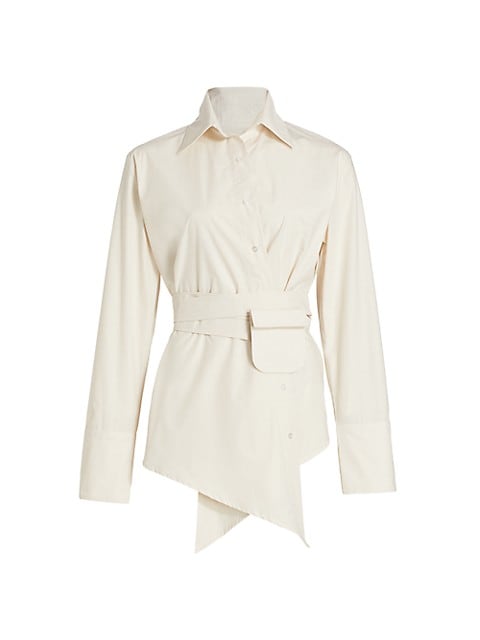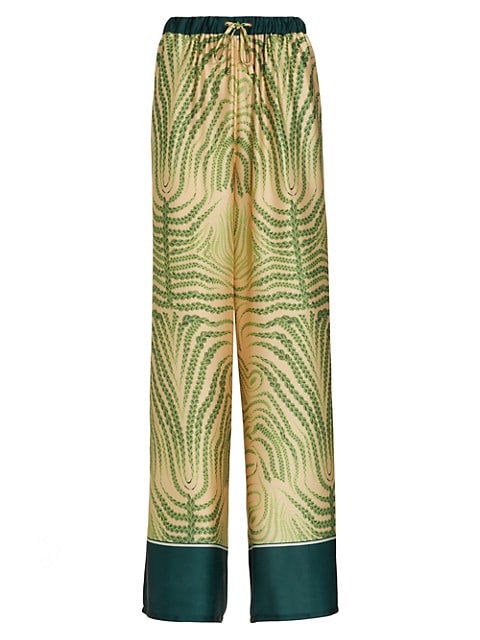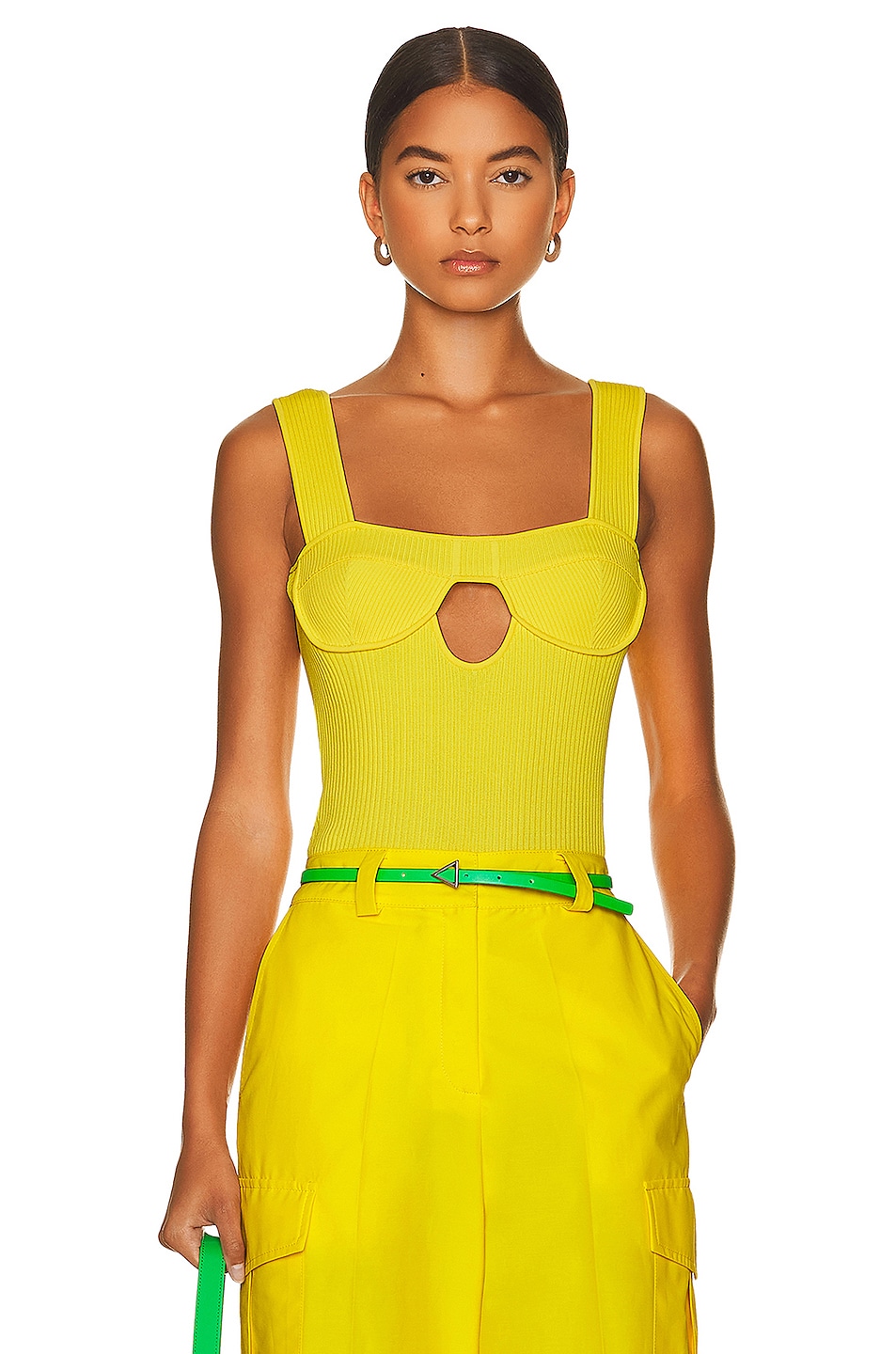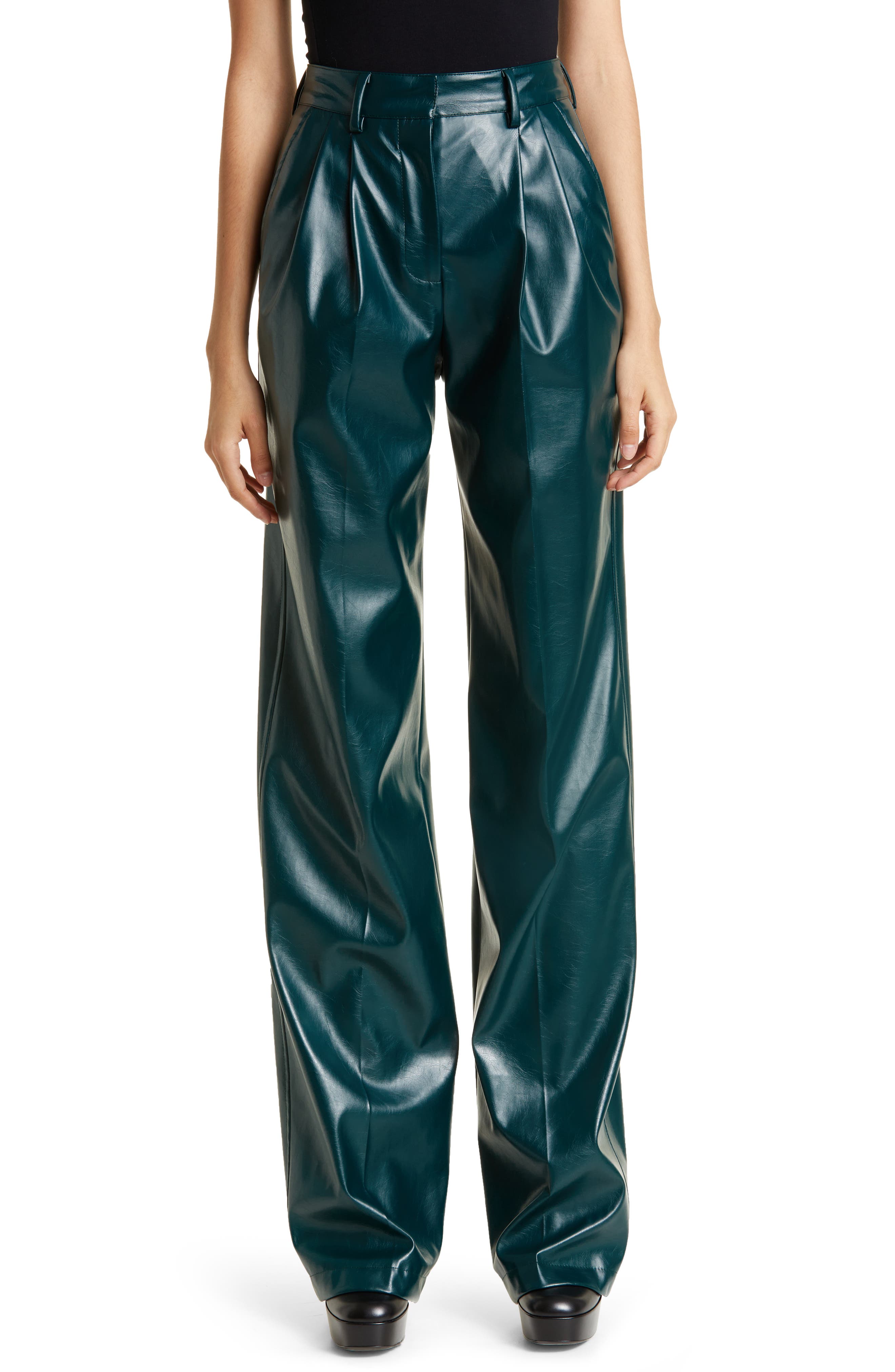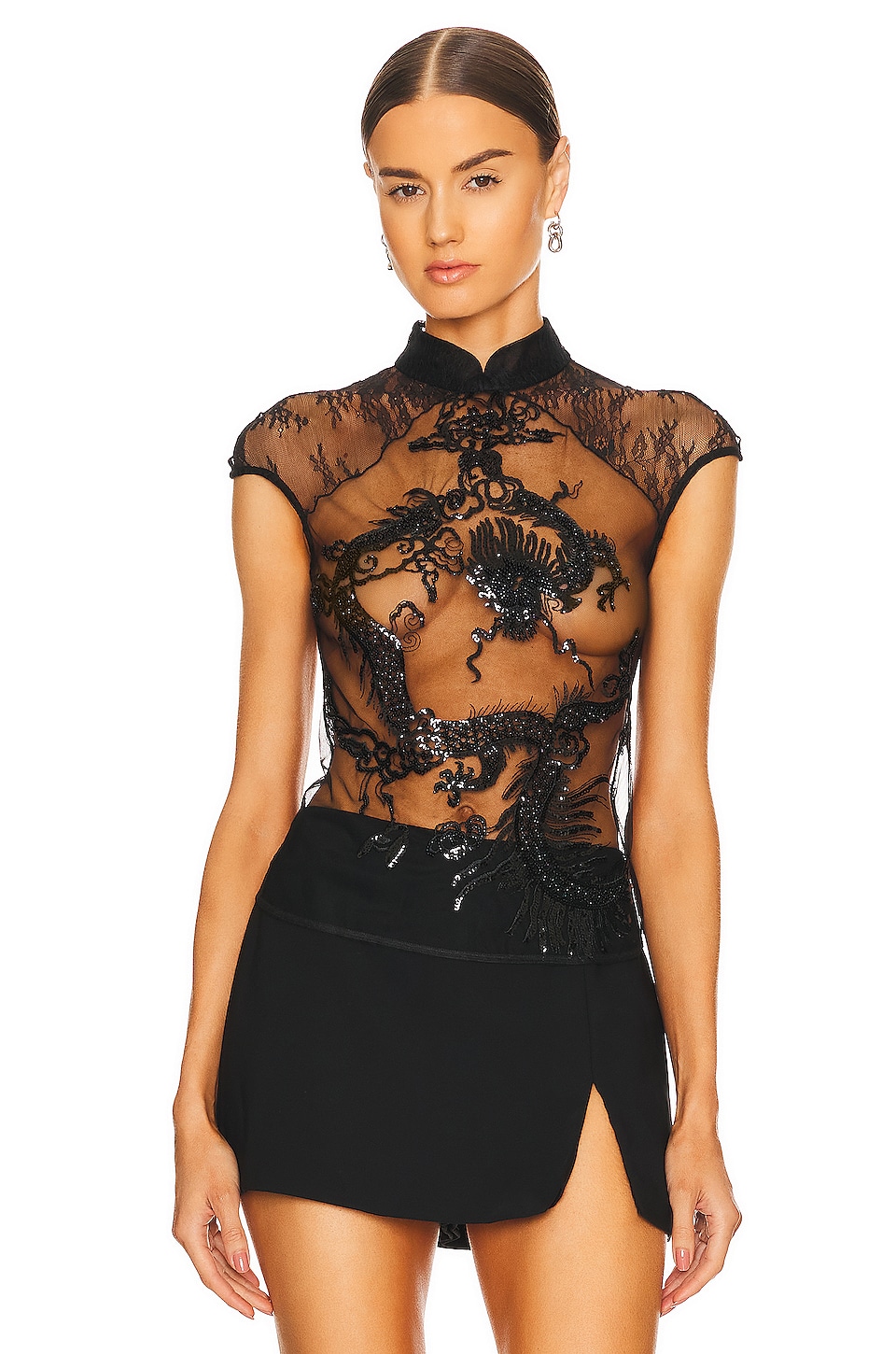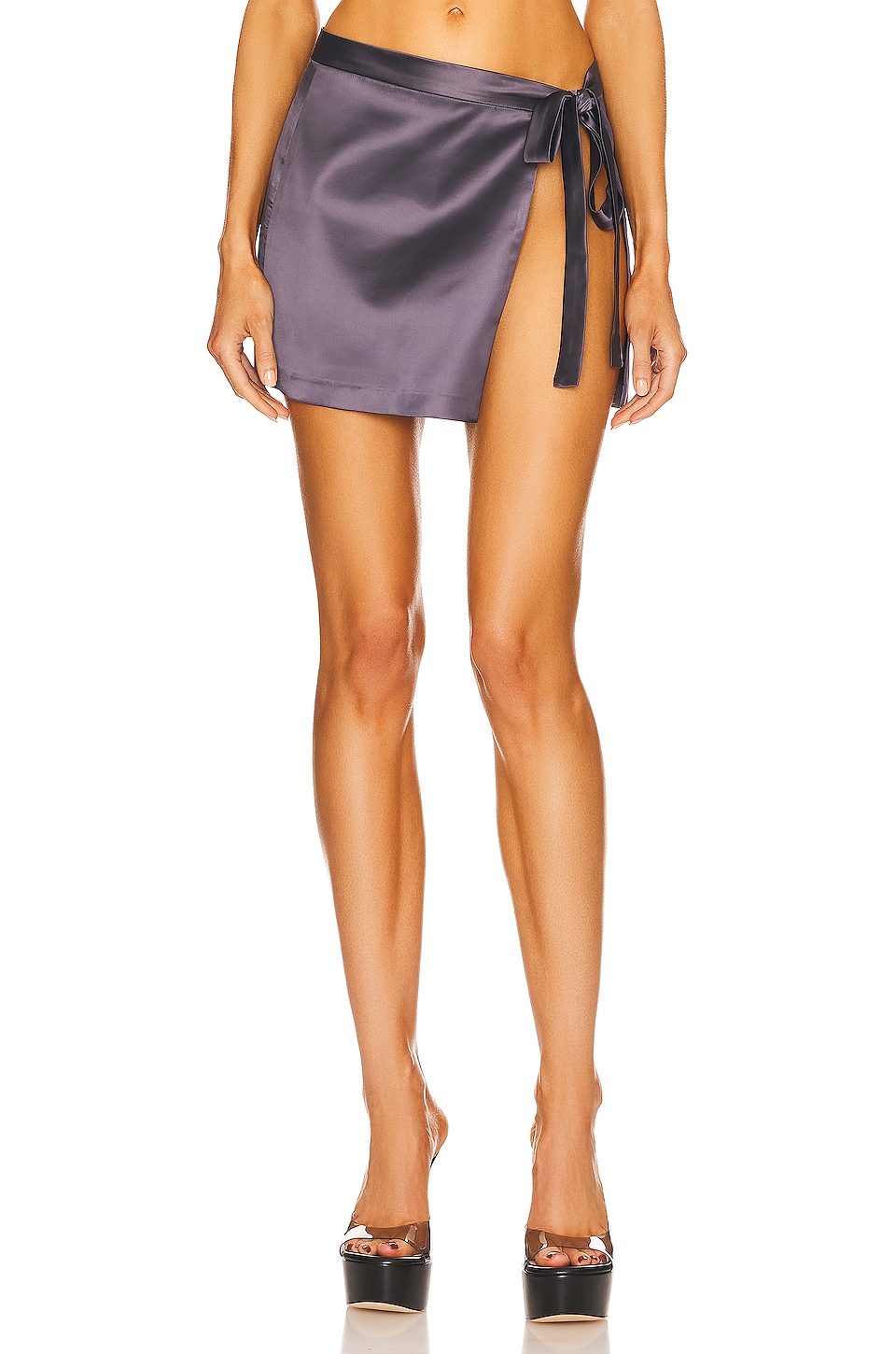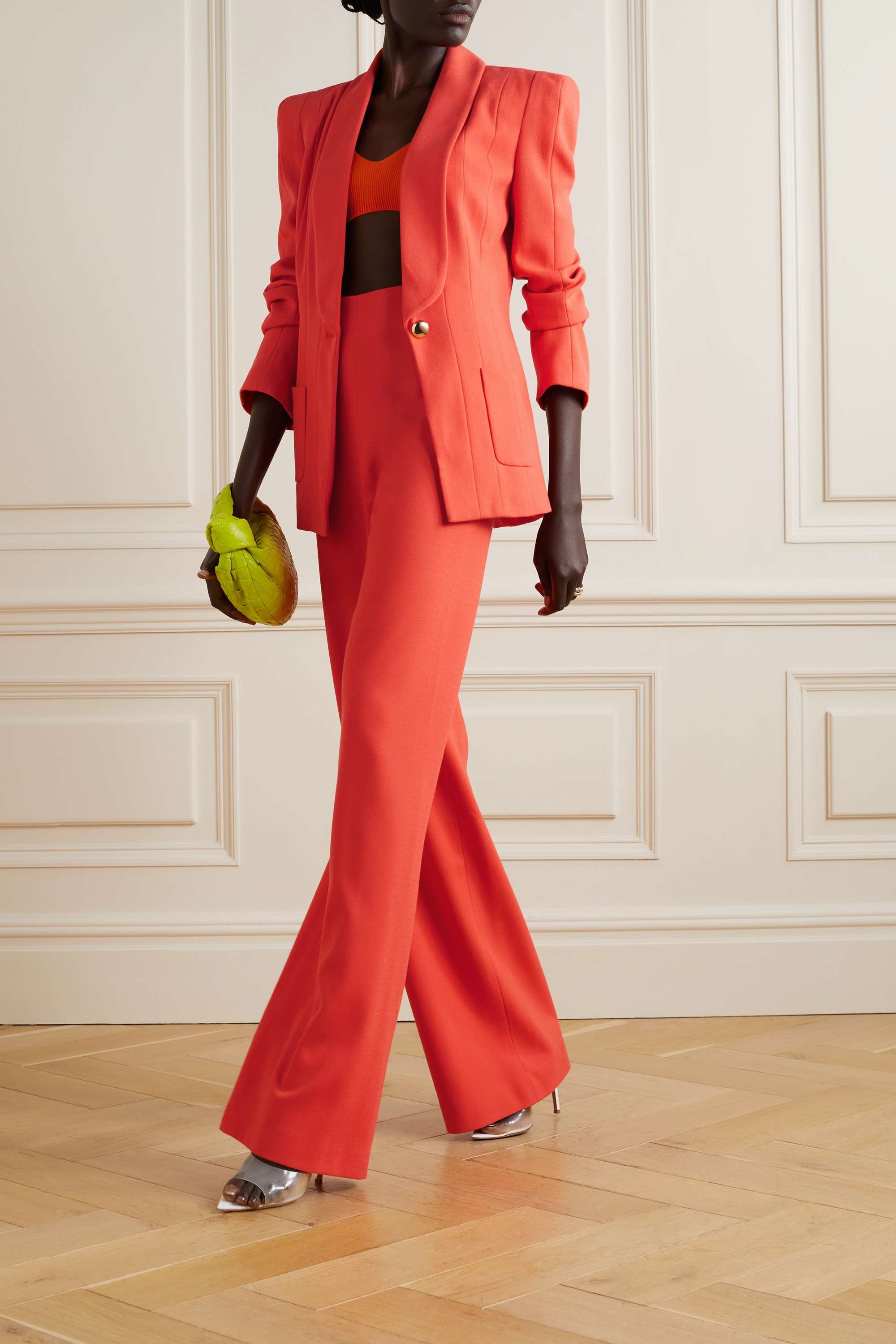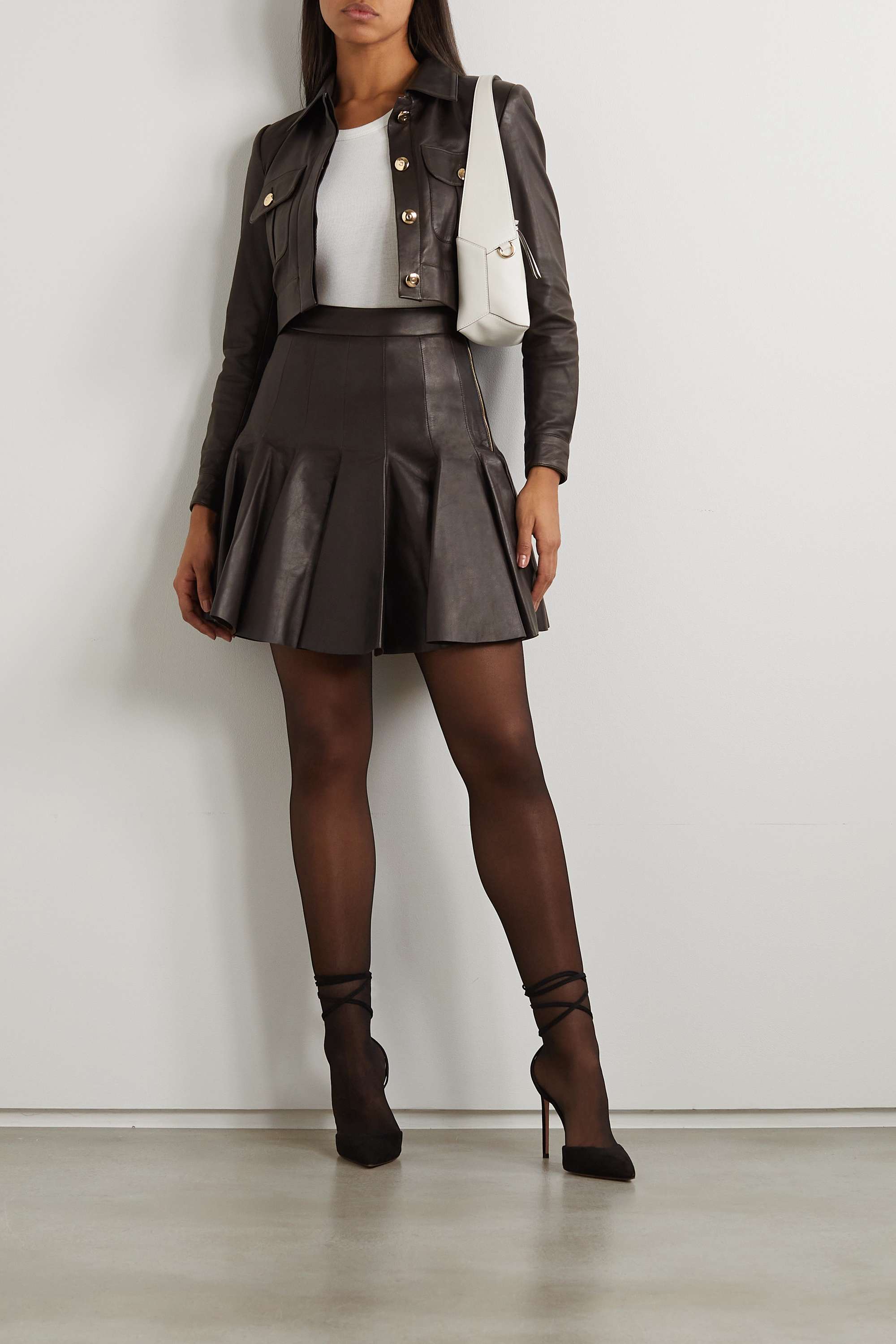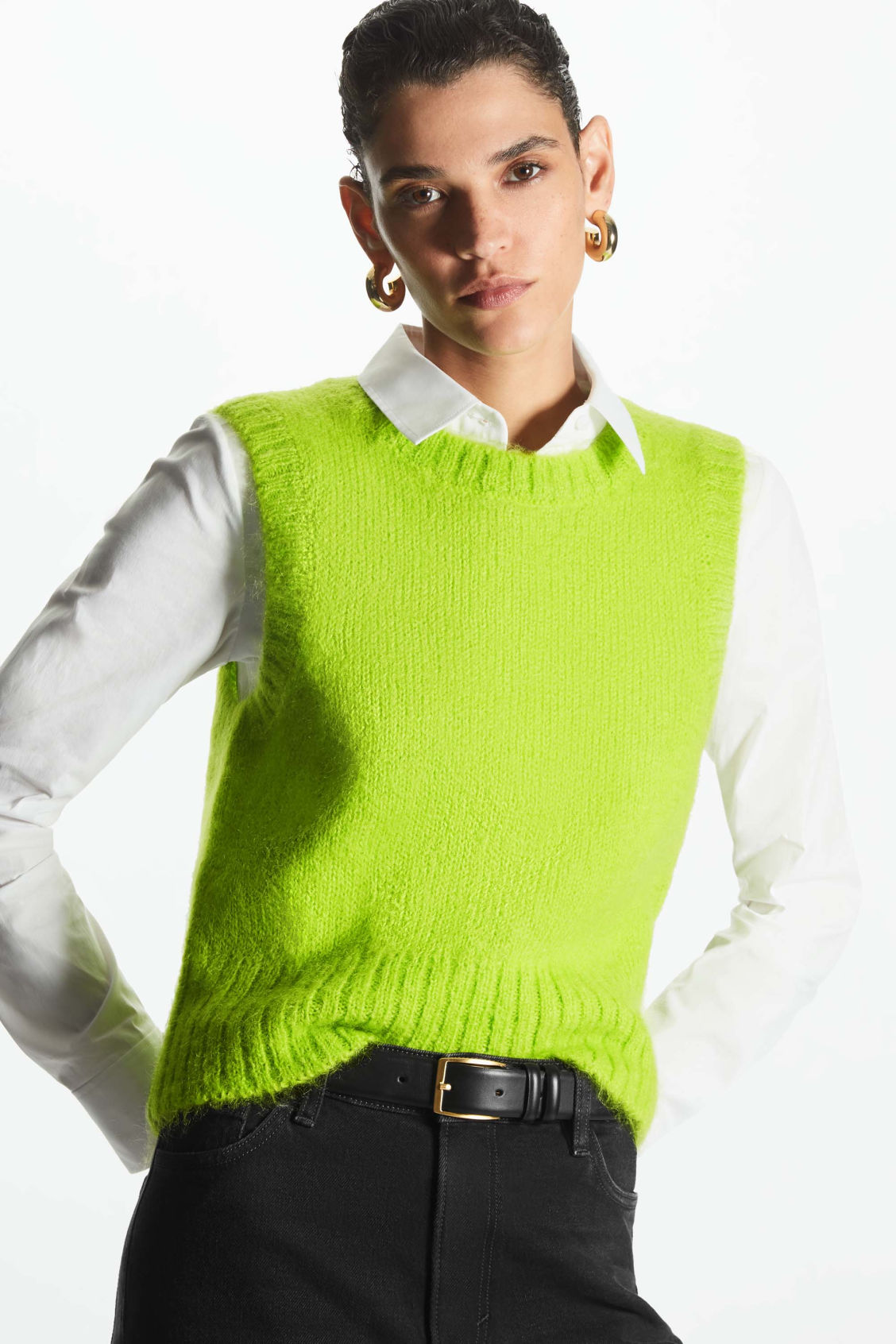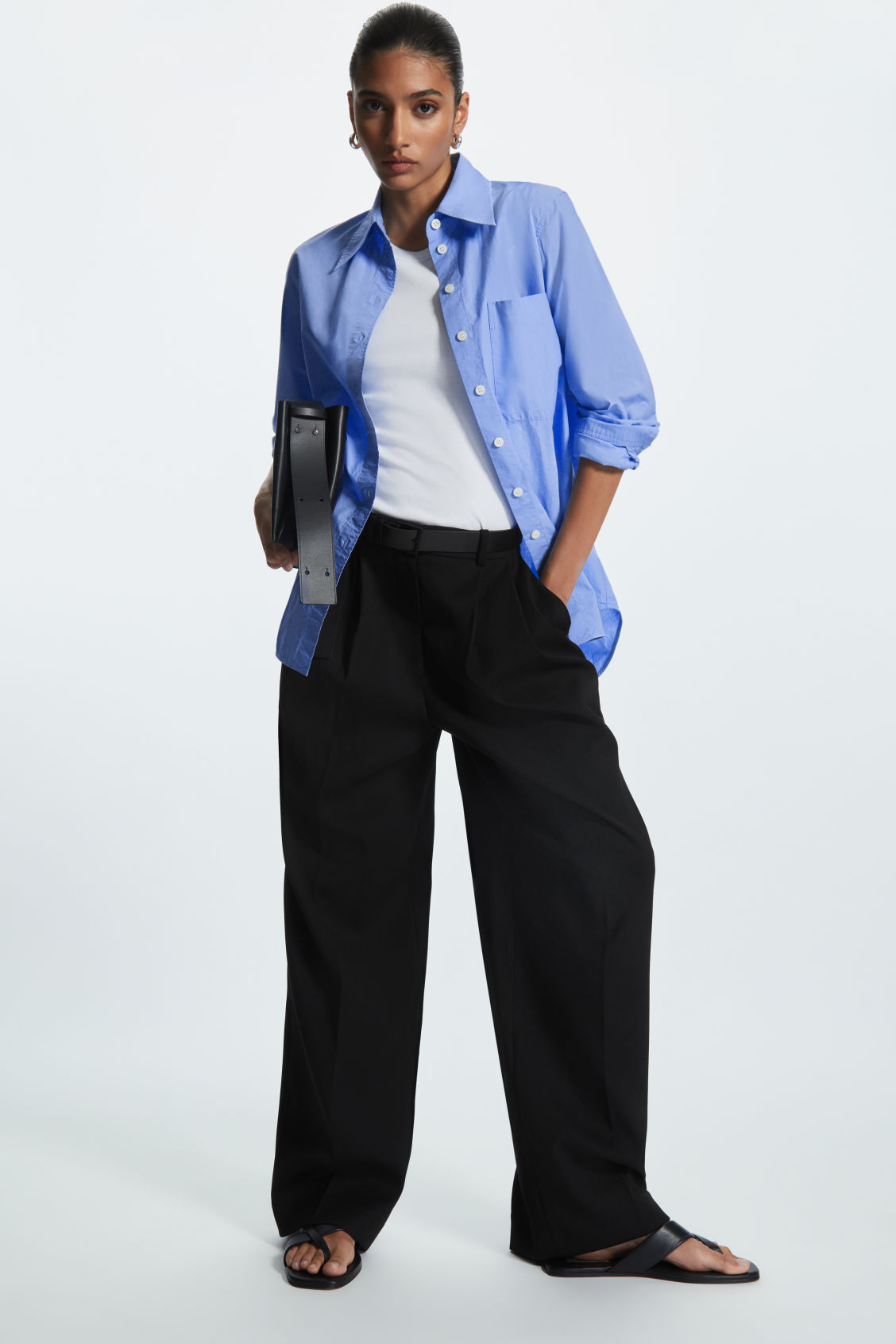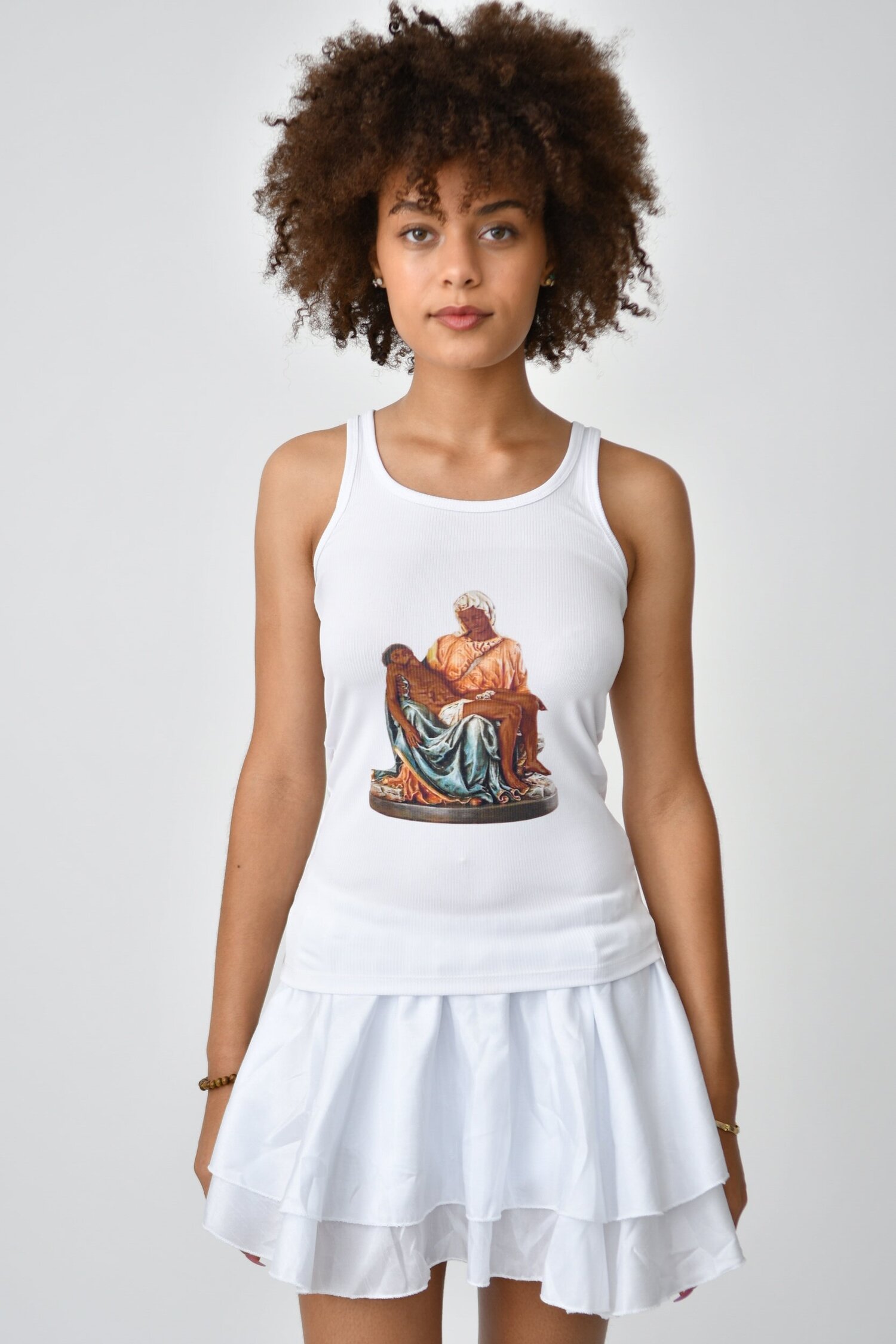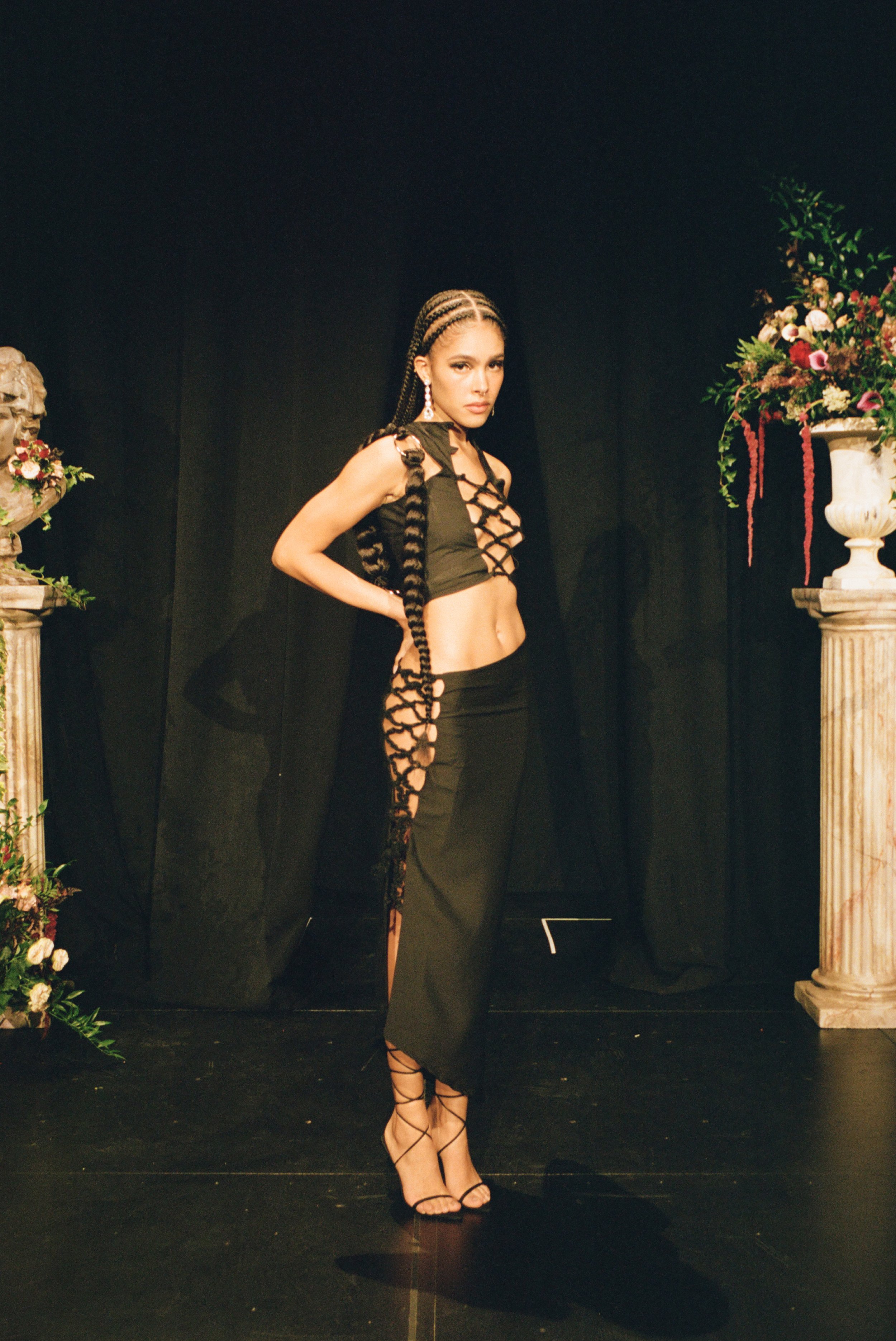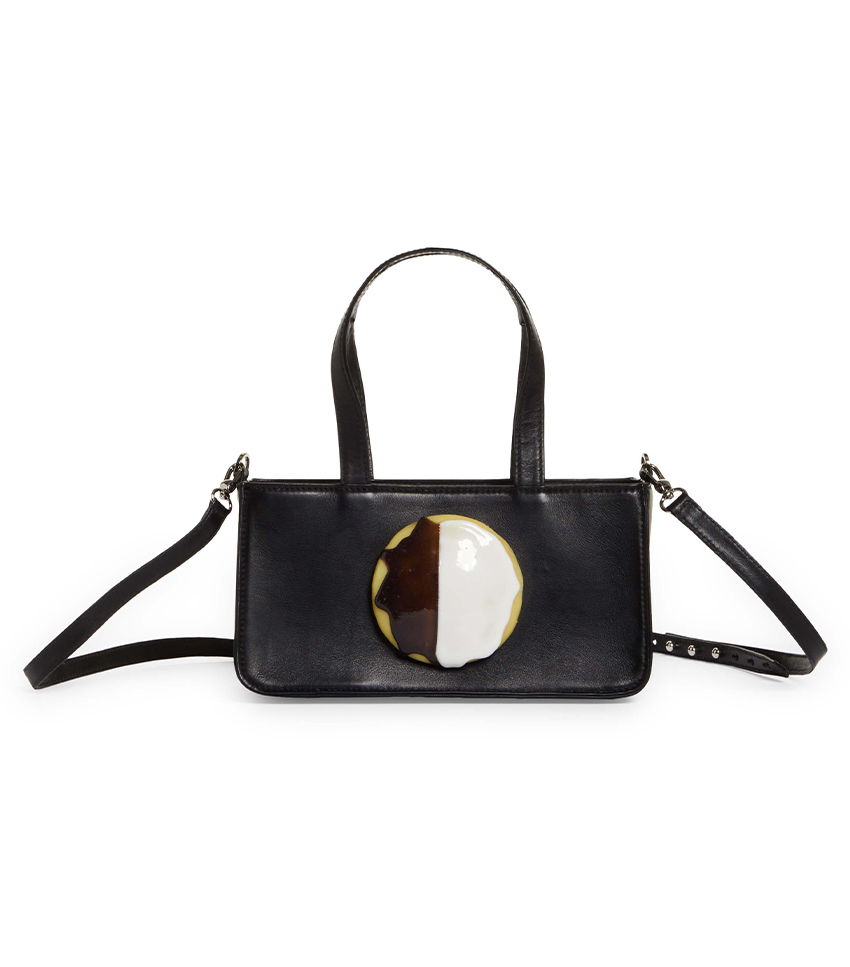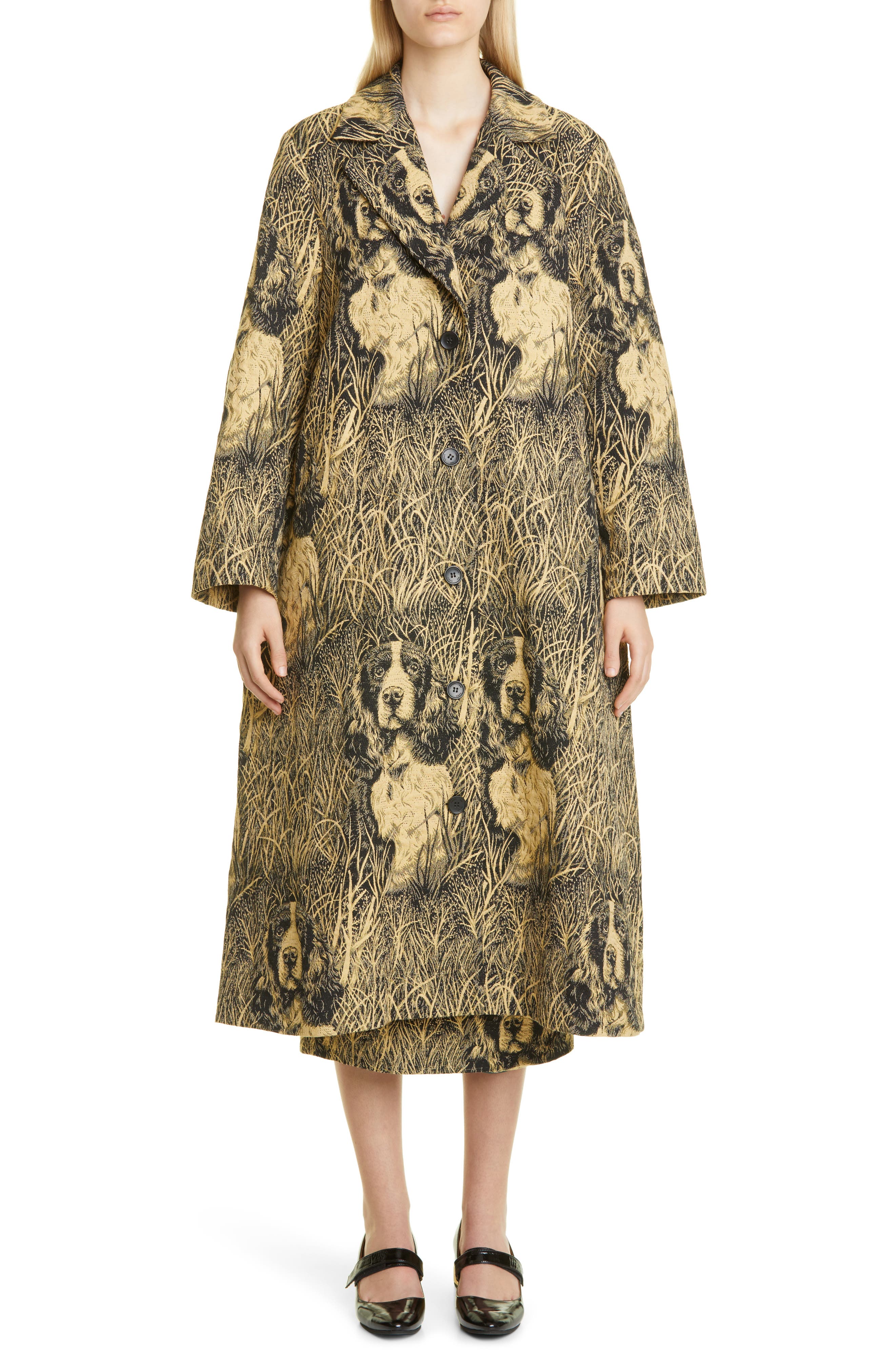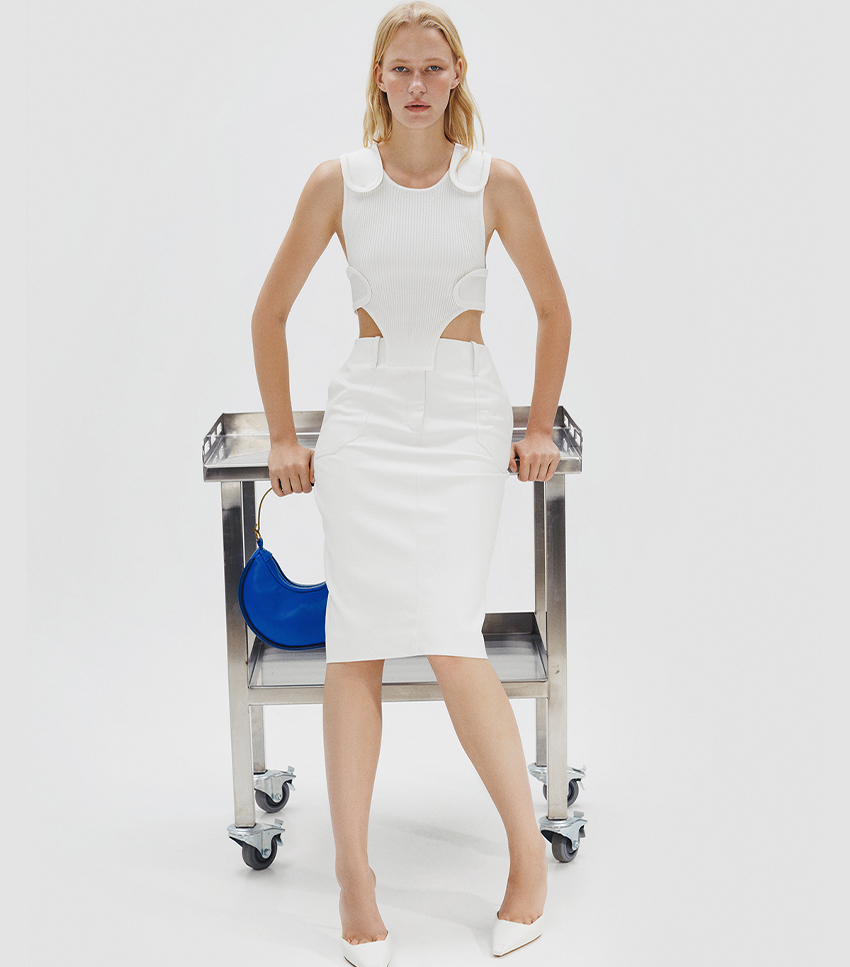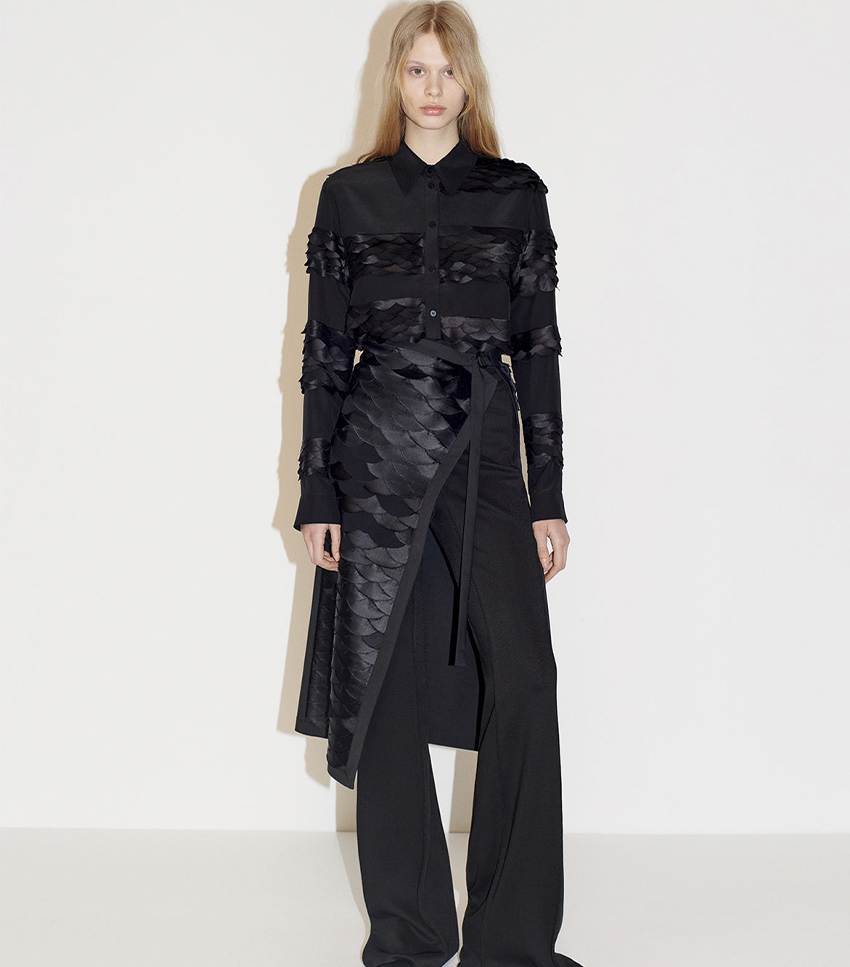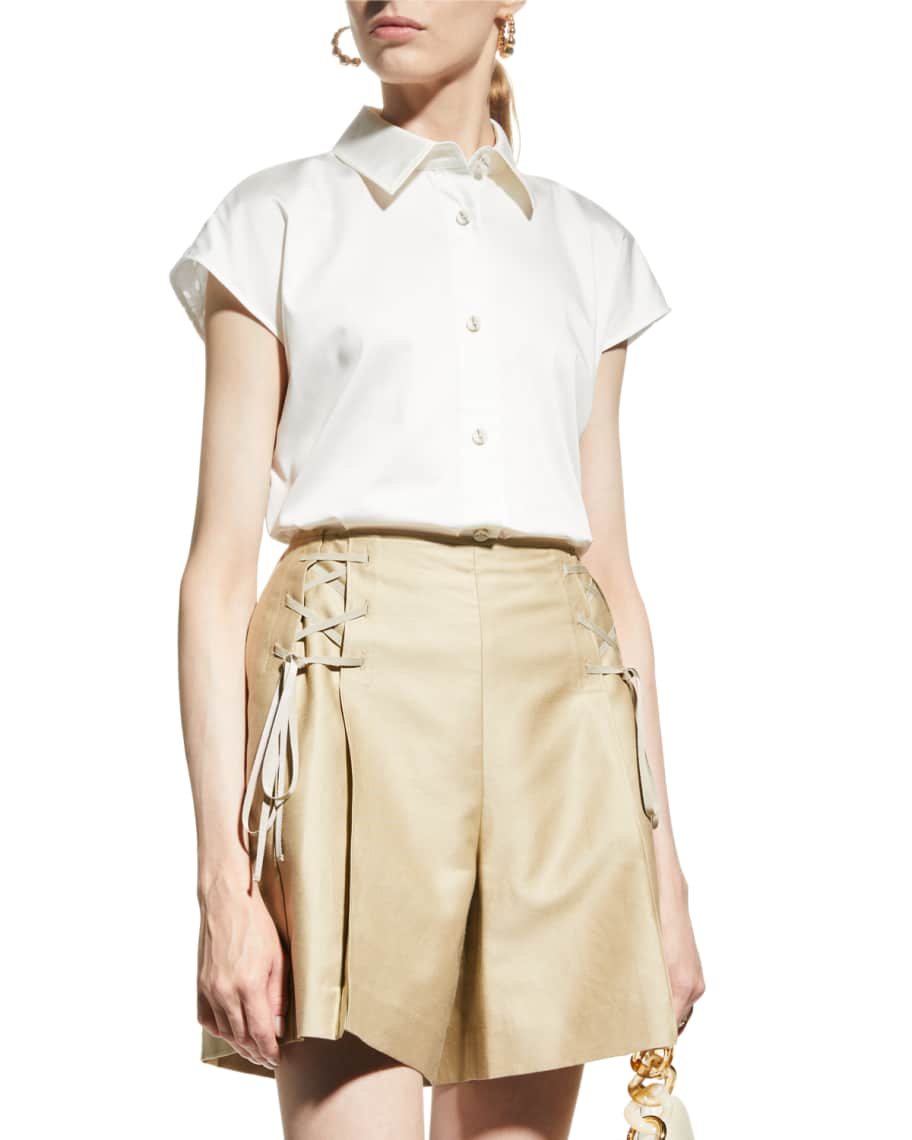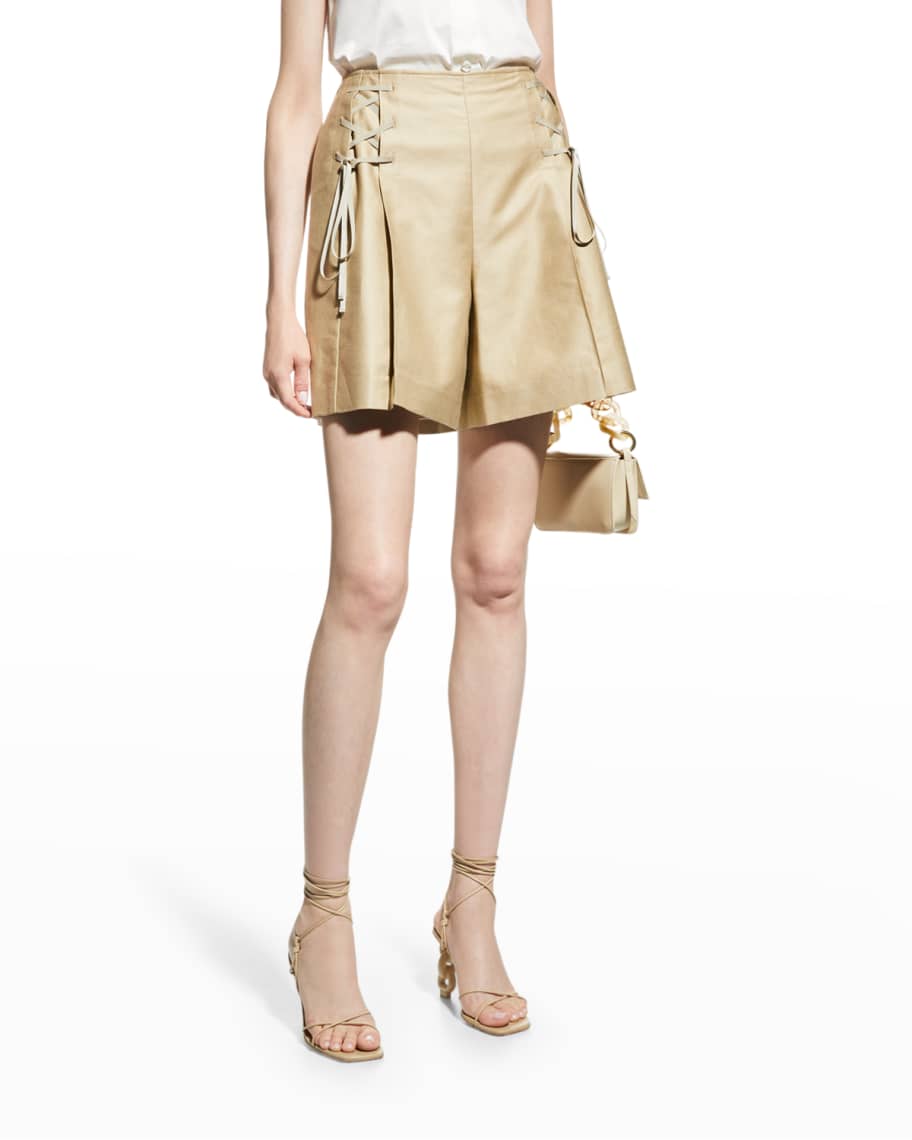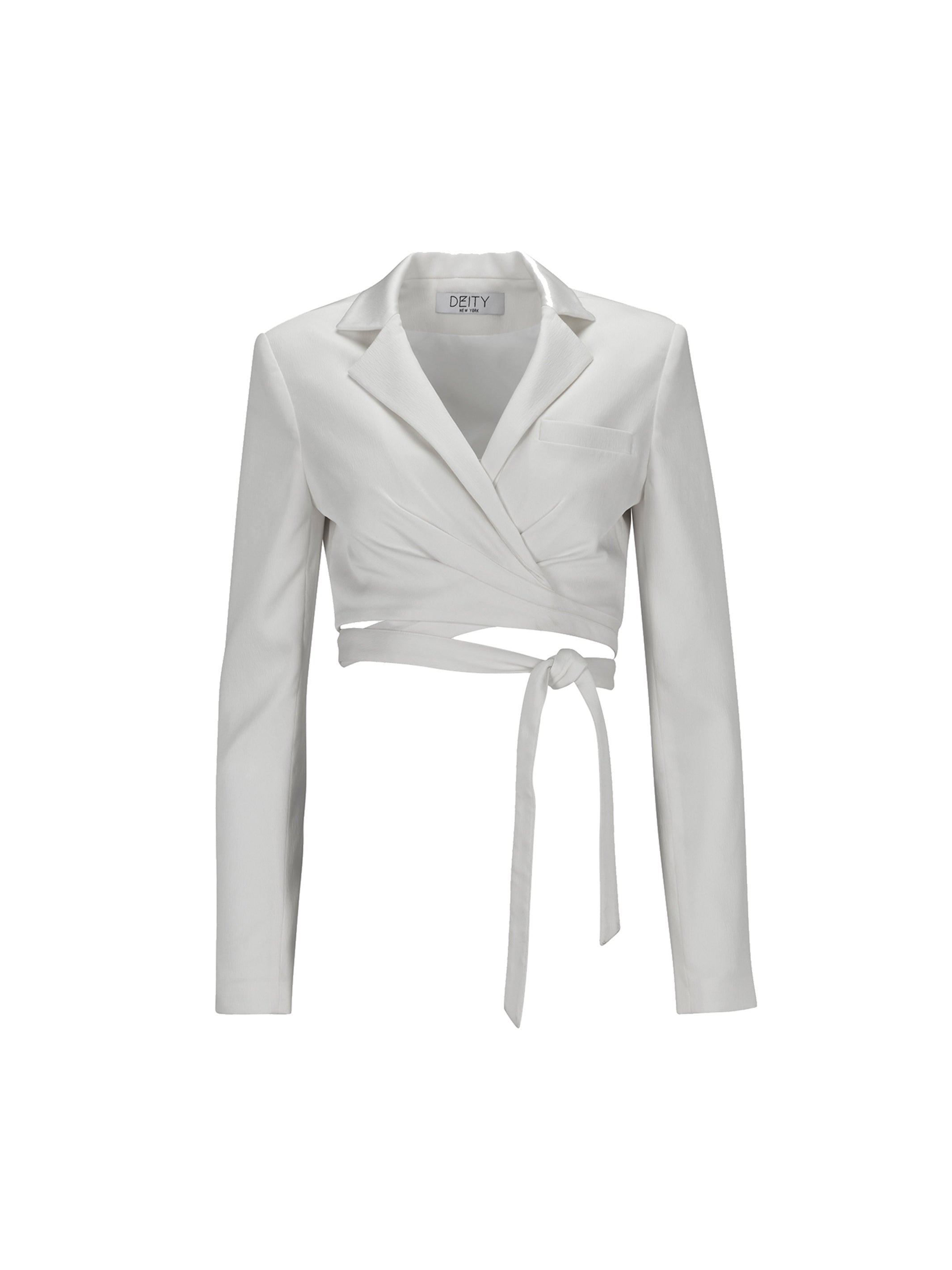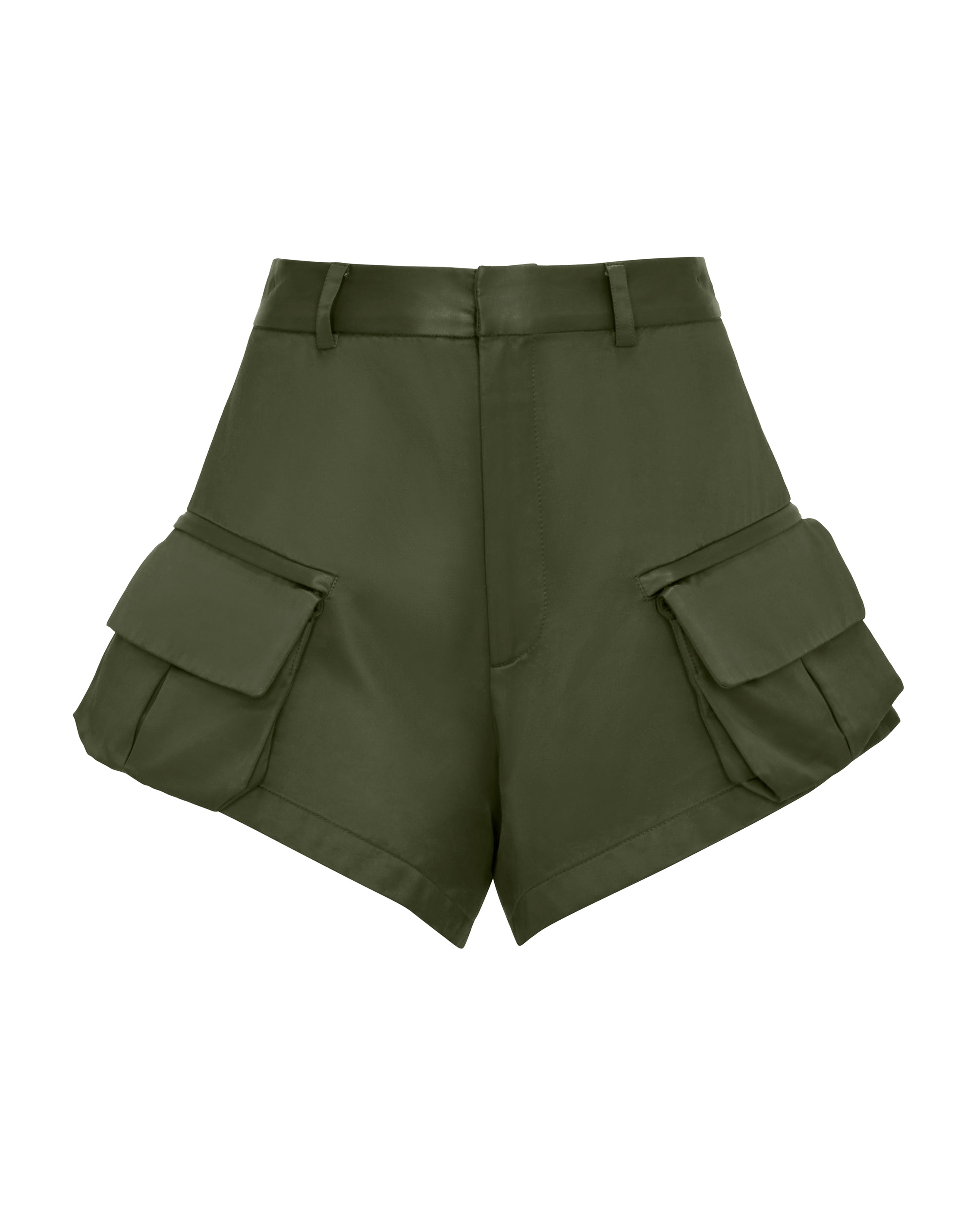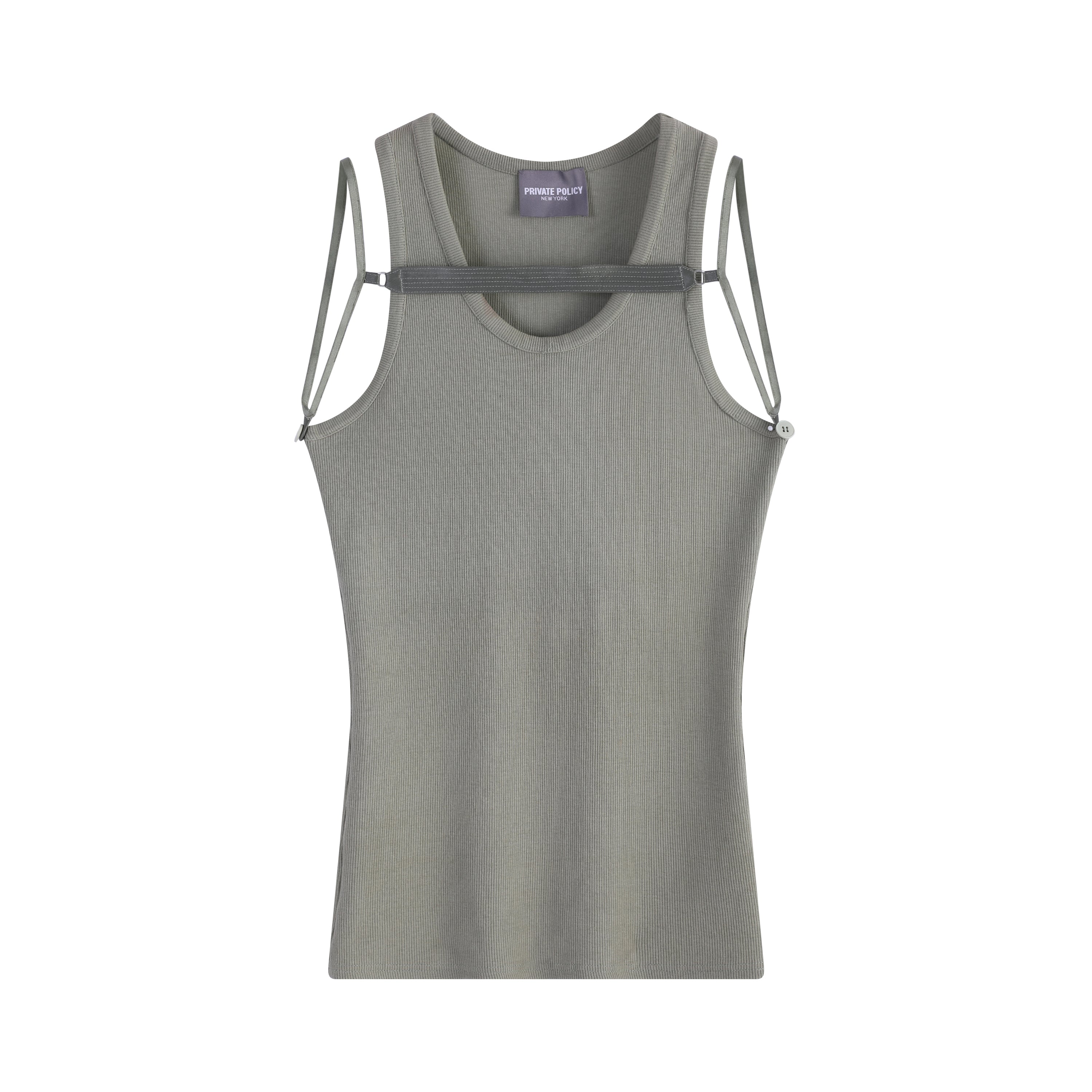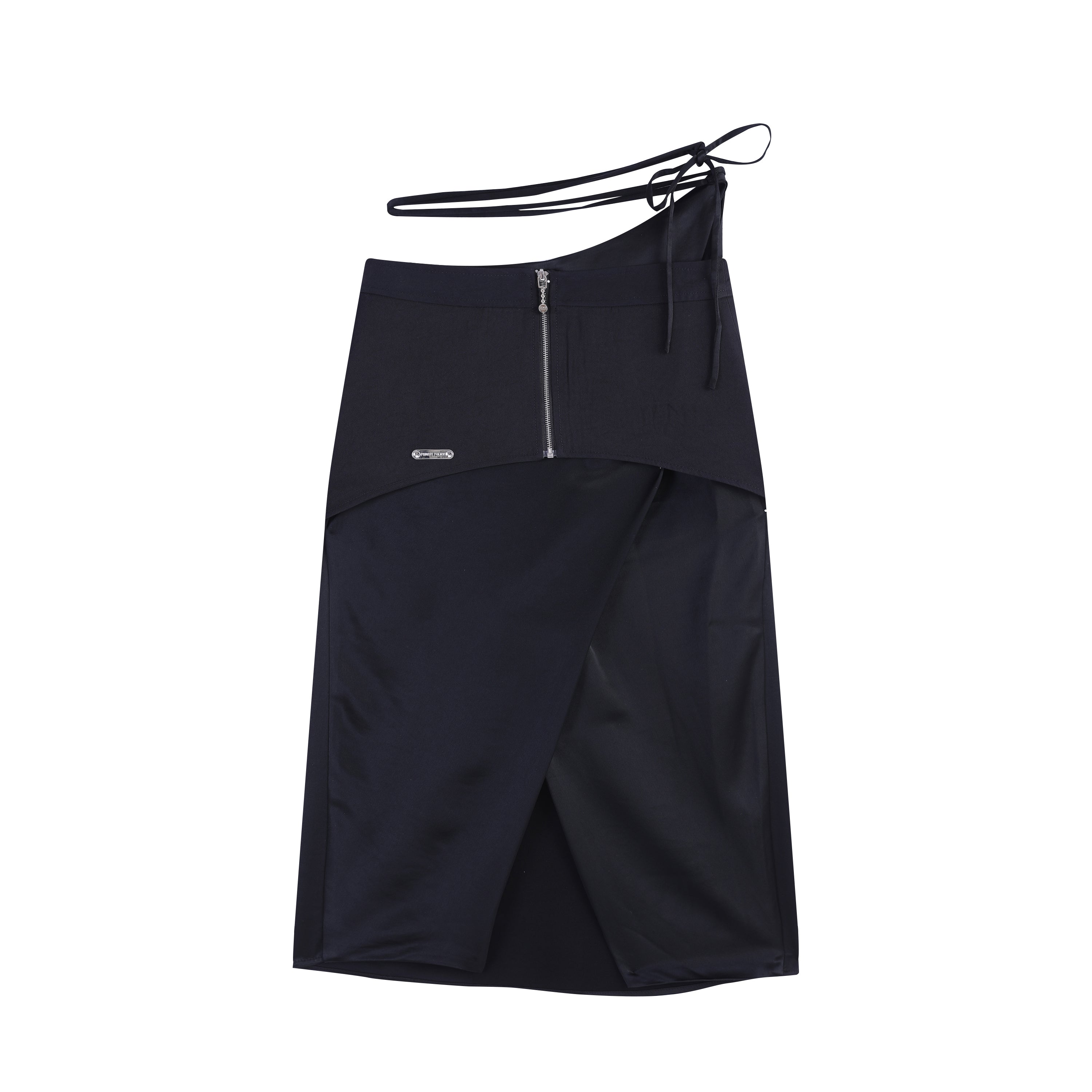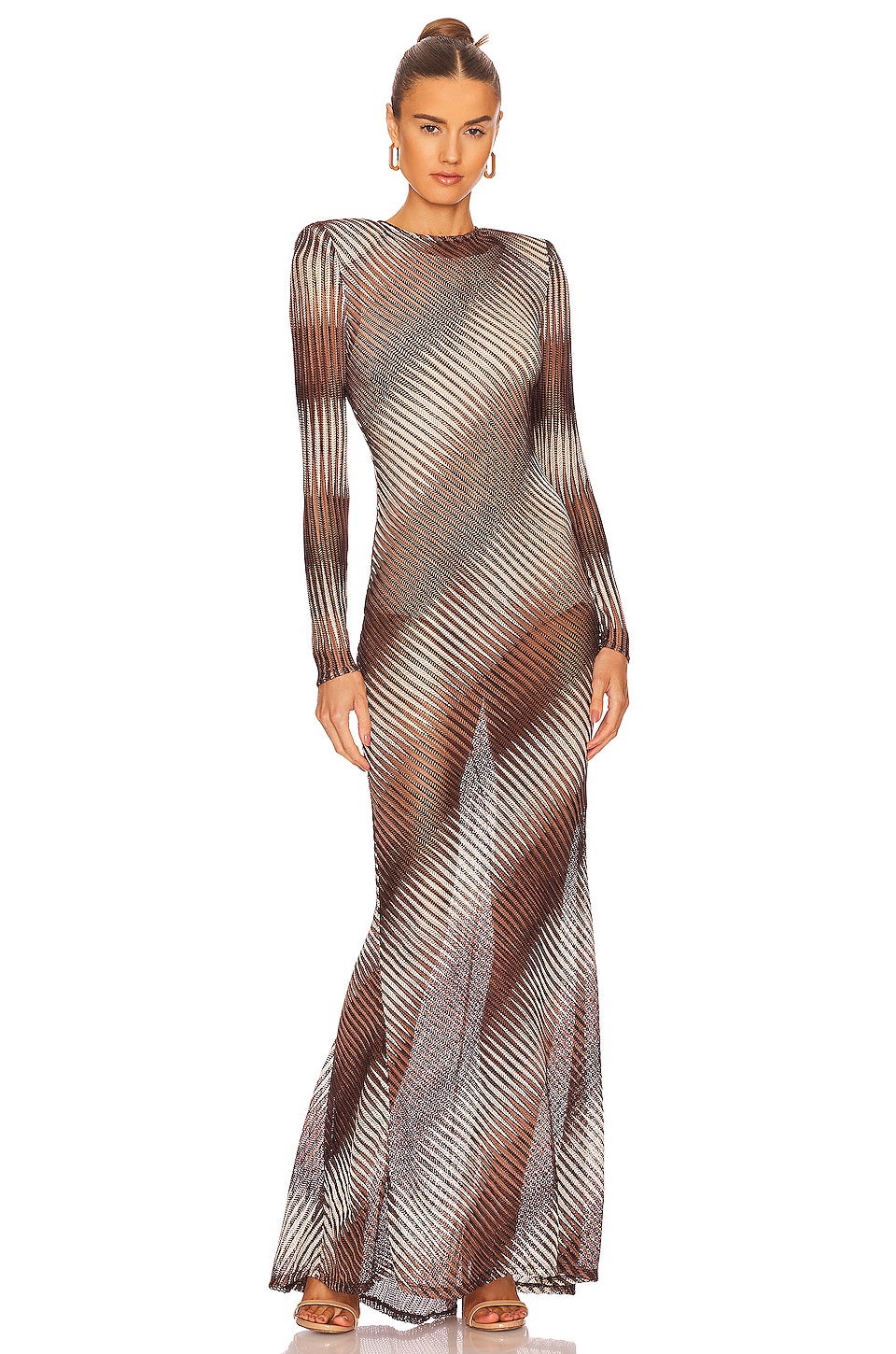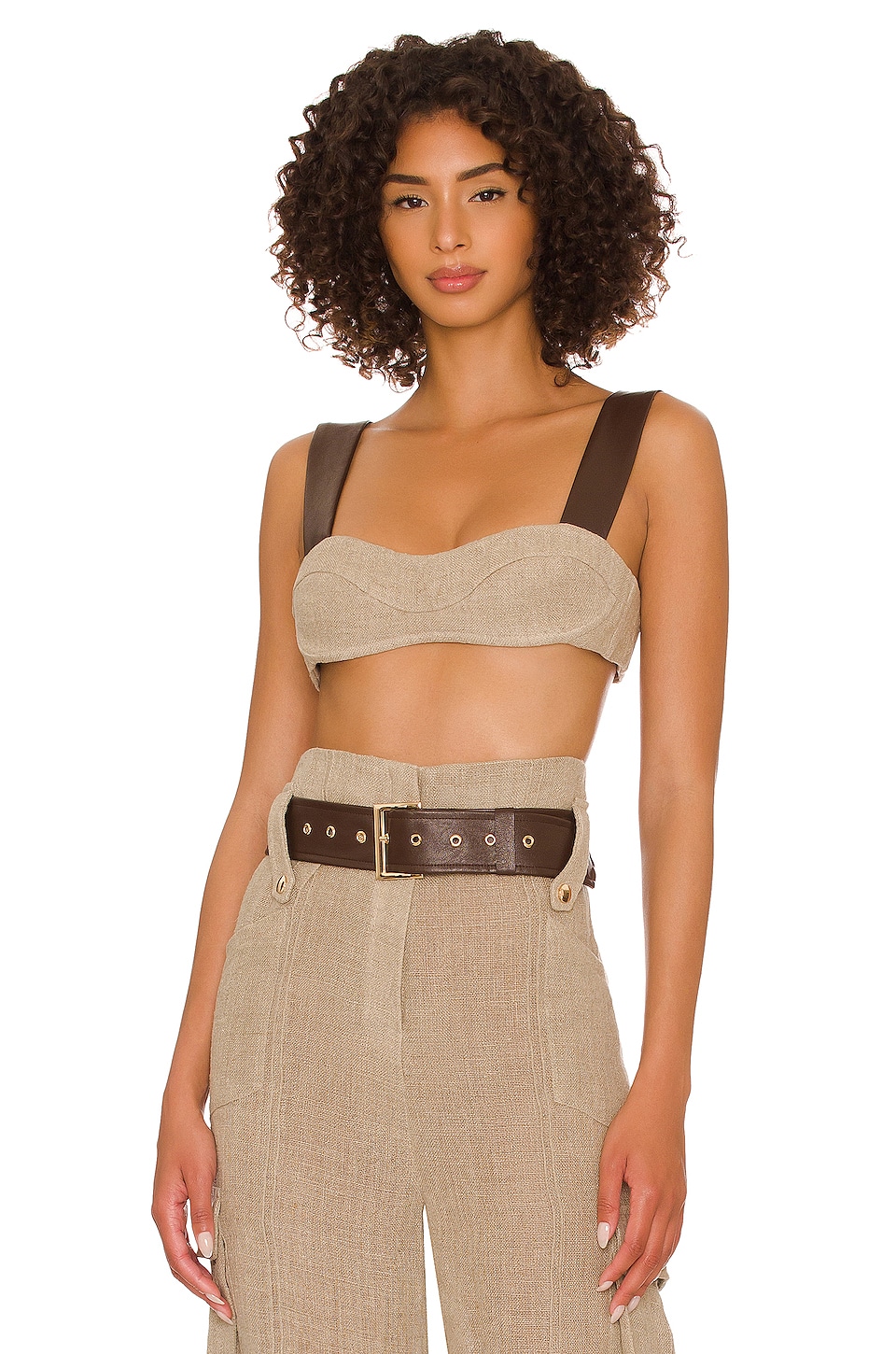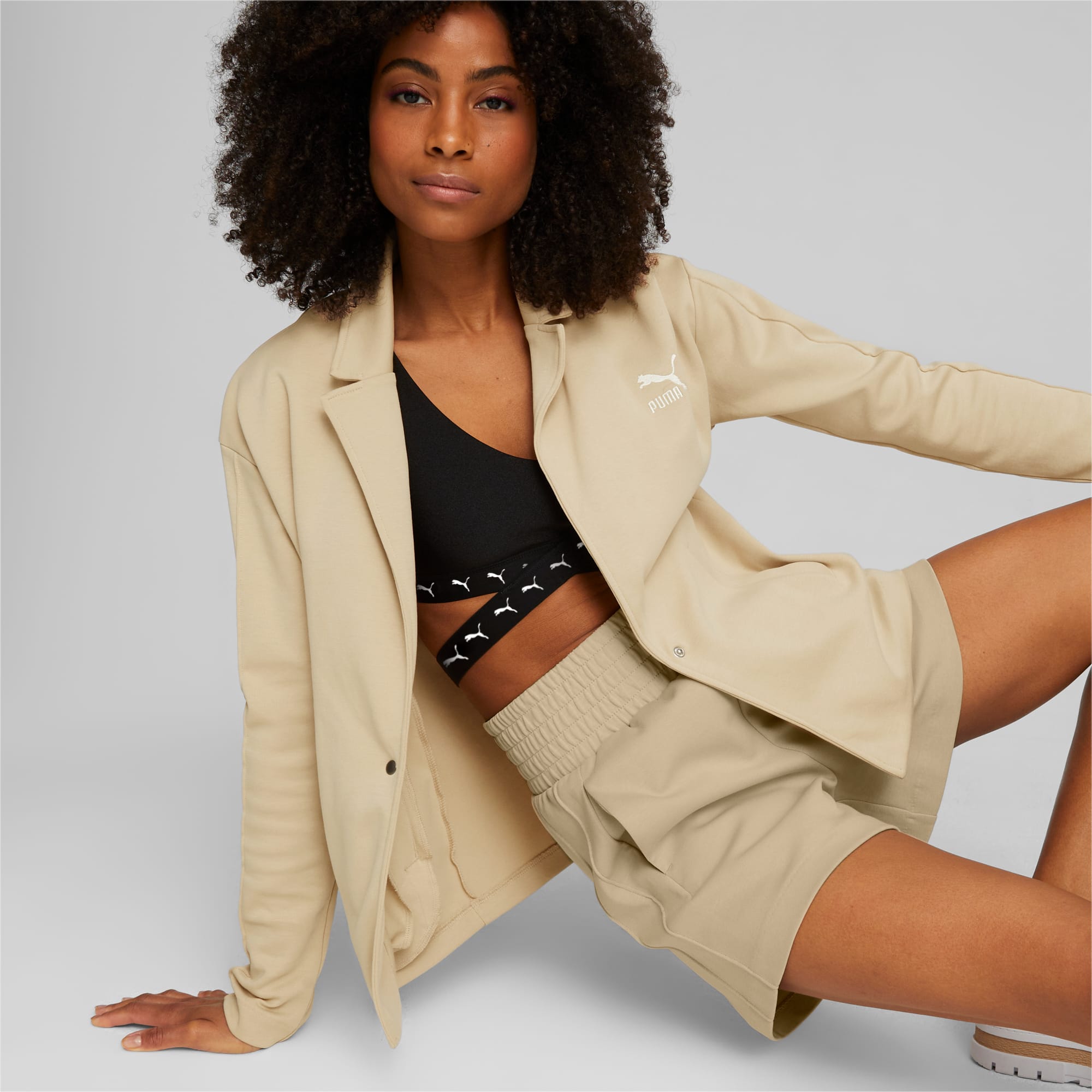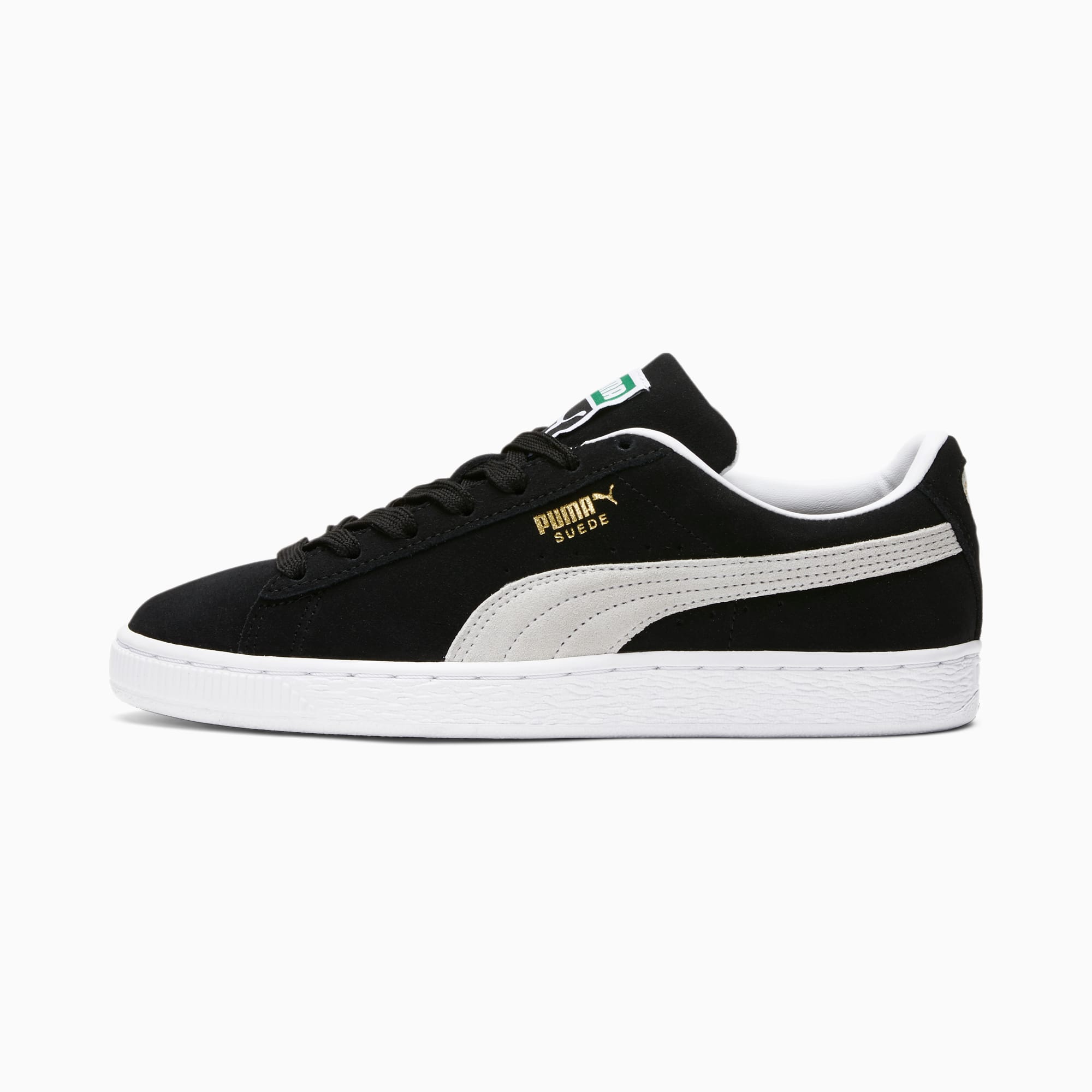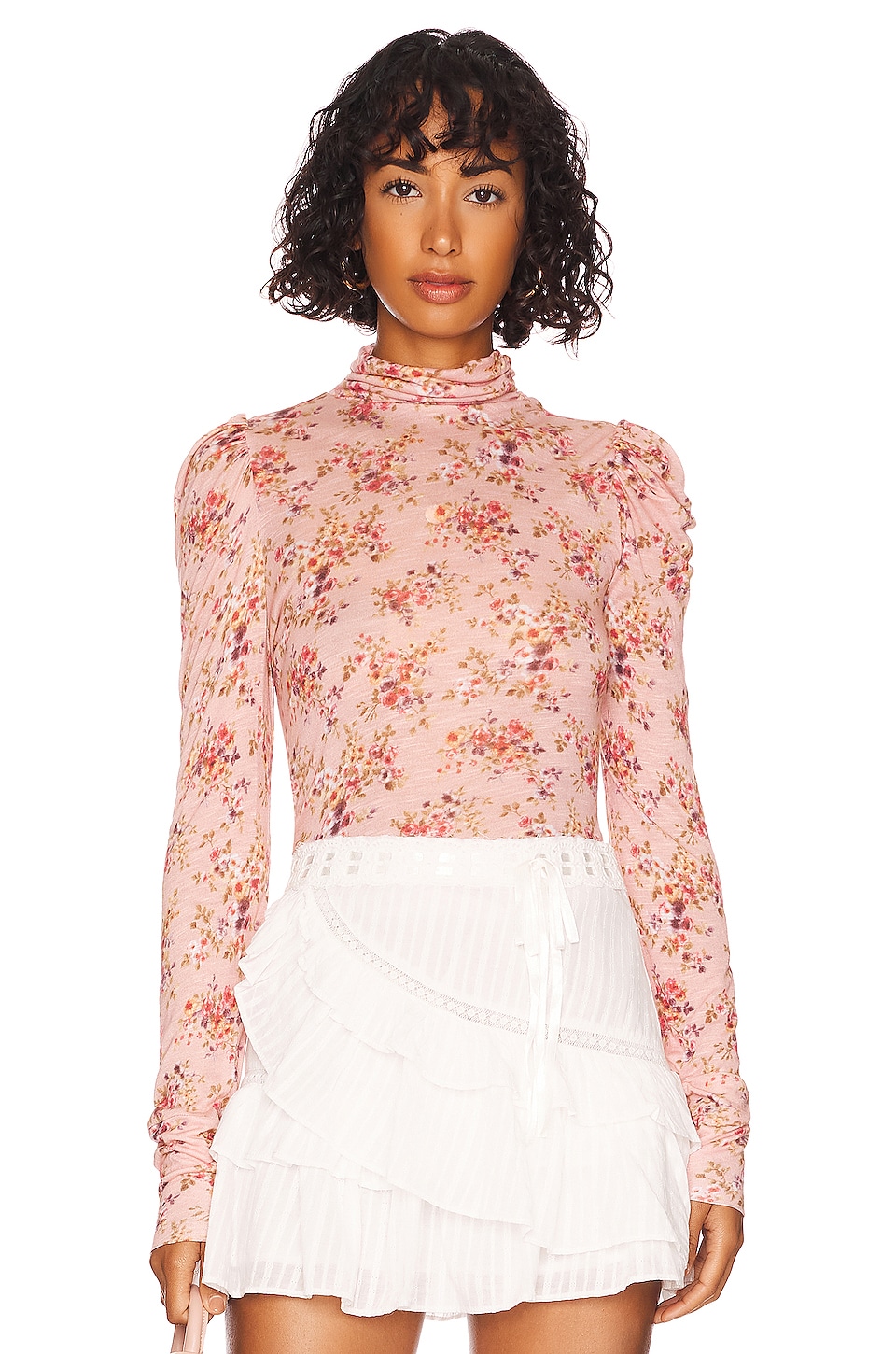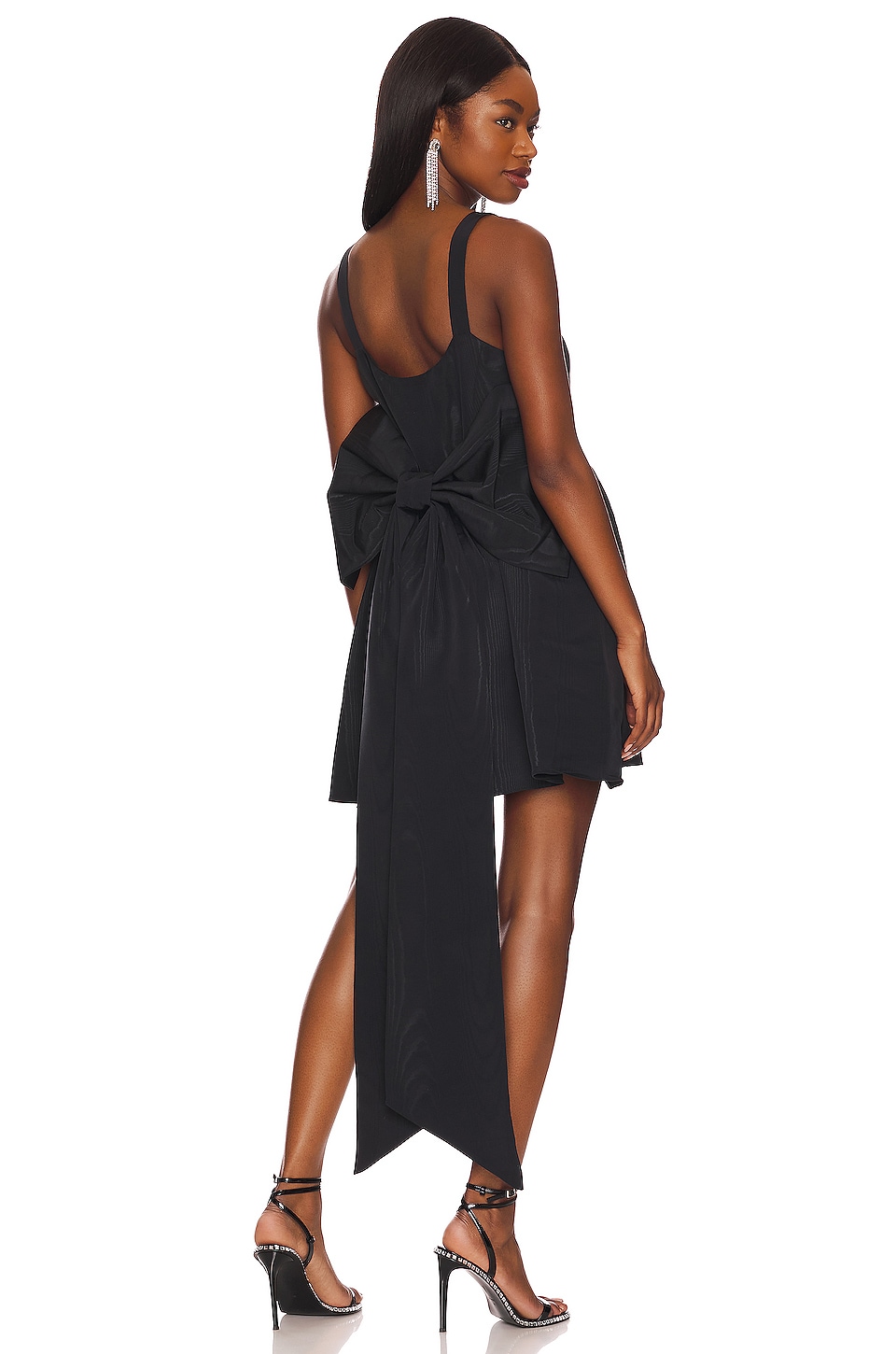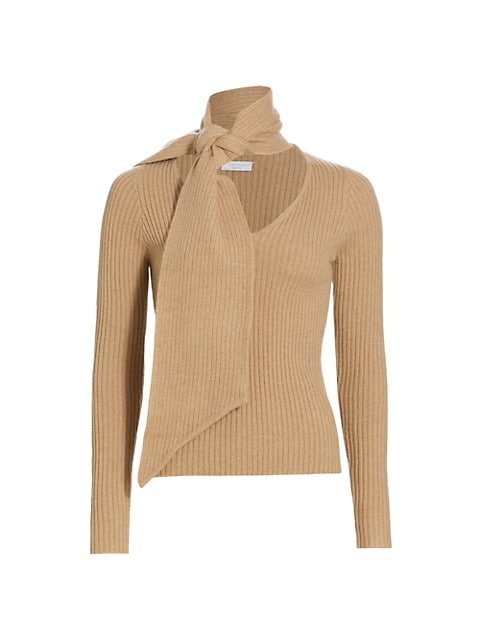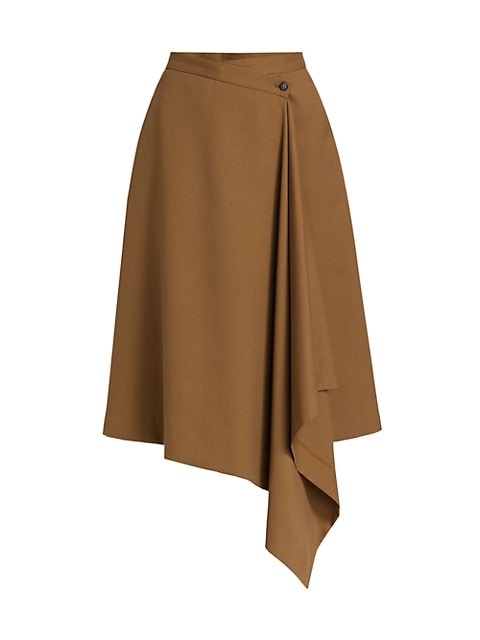15 Designers on What Goes Into Creating a Show for Fashion Week
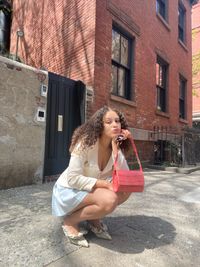

Anyone who's ever been lucky enough to attend a fashion show (whether it's in Oslo, New York, Paris, or one nearby home) knows there's always a moment that manages to surprise you. Suddenly, a model wafts down the runway in an incredible frock, and you can feel goosebumps on your body. Even if you've never watched a runway show in person, it's an equivalent feeling to finding the perfect fall staple or scrolling through the runways online and gasping mid-scroll—it's a split second filled with a sliver of magic.
But as an editor, I know that moment can be fleeting; trends change quickly, and most runway shows only last 15 minutes. Nonetheless, there's something to be said about all of the work that goes into creating that moment, especially when it's about showing off your recent collection at fashion week. Many may see the runways as a glamorous source of inspiration (and they often are), but what many don't see are the countless hours spent getting to that point. Designers will spend months making their collections, picking a venue and playlist, trying to find sponsorships, and working with public relations to invite industry veterans like buyers and editors.
Basically, fashion week is not all glitz and glam; it requires a lot of grinding from everyone involved. And to highlight the incredible work that goes into it, I've reached out to 15 fashion designers who showed their S/S 23 collections in New York City this past week. Ahead, you'll hear from them about common misconceptions about fashion week, what prepping for their shows was like, and of course, details about their newest collections. Prepare to get the full download on S/S 23 NYFW.
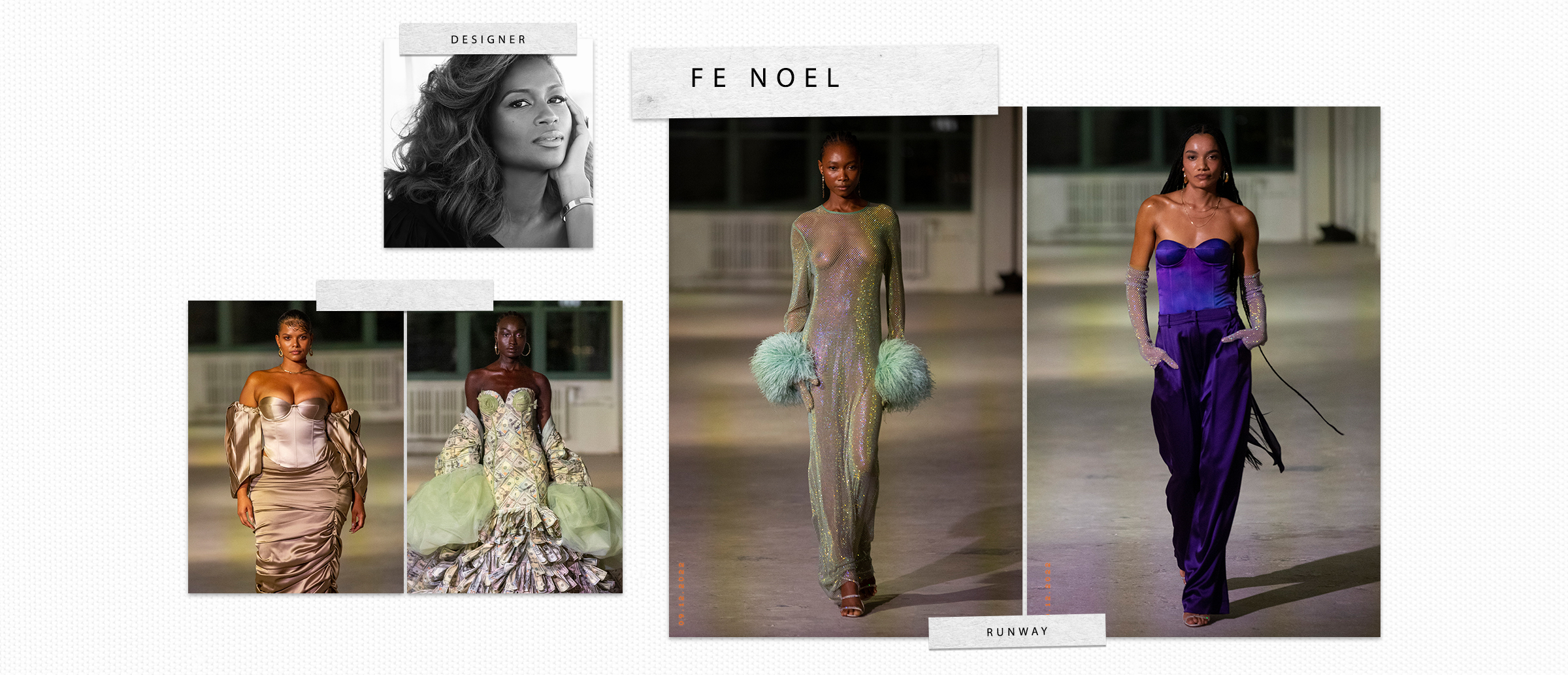
WHO: Fe Noel, Designer
For those who are unfamiliar with your work, how long have you been in the fashion industry?
FN: I’ve been in the industry for about 15+ years now. I started as a boutique owner and transitioned into fashion design. I worked tirelessly under the radar for quite a while. My aesthetic became more prominent as time passed, and the industry started to notice.
What compelled you to start your label? How has the brand evolved since its founding?
FN: My unique POV is what lead me to express myself creatively. I was raised in Brooklyn, but my family is from the Caribbean. I’m from a vibrant culture, so even at a young age, I had a particular style I wanted to convey. It was sexy but with mystery, more sensual. Many things have changed, and we are constantly evolving. Still, the foundation and brand ethos remain the same: designing for women and empowering them through style, fit, curated color palettes, and our lifestyle moniker of "Make Life Beautiful.”
What are the most common misconceptions about showing a collection at fashion week?
FM: The most common misconception is that it’s all glitz and glam—it truly isn’t. You get 15 to 20 minutes of that, but pre- and post-work is 99% grit and grind.
You showed your S/S 23 collection at New York Fashion Week this year. What was the prep experience like for you? And how long have you been preparing for this moment?
FM: To be completely transparent, showing NYFW as a small brand with a small team has many challenges. As a creative, you want to present a high-level collection and experience that will captivate the audience. The pressure behind that stretches you to think outside the box and work with what you have. It’s best to start planning a show six months ahead, but it never works out that way for me. When I became a Vogue Fashion Fund finalist, I decided doing a show would be best this season. Our prep time was just under two months to ensure we secured sponsorships, hired production teams, created and finalized the collection, and had a strategy around marketing and PR.
Speaking of your collection, can you tell us a little about its inspiration? Are there any standout looks or trends you hope we’ll take away from this collection?
FN: I was inspired by the various emotions we go through. I wanted to interpret looks that coincide with different moods. I chose romance, mourning, and celebration. When we are going through various stages in life, often our clothing is also a reflection. I took silhouettes we are known for and refined them. If I were to forecast my own trends from my collection, I’d say voluminous sleeves are always a thing.
We’re officially in the full swing of fall. Are there any standout staples or trends you’re excited about?
FN: As a resortwear brand primarily, we don’t design for specific seasons. However, my personal style for fall is going to be full of ridiculously oversize sweaters and my favorite Margiela and Fe Noel jeans, respectively.
What do you hope your legacy will be as a designer?
FN: I want to incite change within the representation of women designers.
Shop Noel's work:
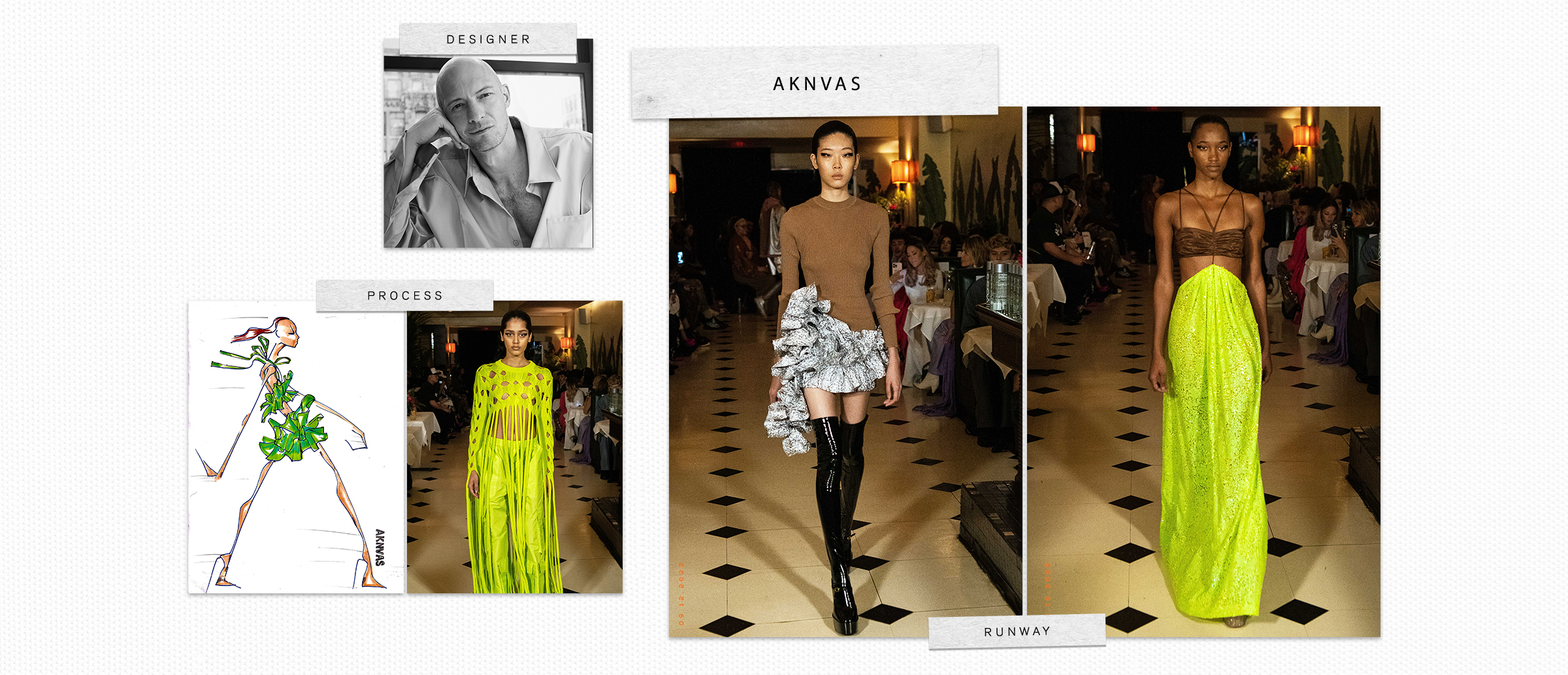
WHO: Christian Juul Nielsen, Creative Director, Aknvas
For those who are unfamiliar with your work, how long have you been in the fashion industry?
CJN: I started my career with Nina Ricci in 2004. After that, I worked at Dior under John Galliano and Raf Simons before founding my label in 2019.
What compelled you to start your label? How has the brand evolved since its founding?
CJN: Having designed couture for years, I wanted to create clothes for the women in my life at an affordable price point. After designing Aknvas for two years, I added menswear to the collection to include personal items I wanted to wear.
What are the most common misconceptions about showing a collection at fashion week?
CJN: Everything apart from the actual runway is extremely un-glamorous!
You showed your S/S 23 collection at New York Fashion Week this year. What was the prep experience like for you? And how long have you been preparing for this moment?
CJN: I've been working on this collection for four months. It's been a whirlwind journey, learning along the way, given that this is my first runway show for the brand!
Speaking of your collection, can you tell us a little about its inspiration? Are there any standout looks or trends you hope we'll take away from this collection?
CJN: I turned to the French pantomime character Pierrot Lunaire for inspiration this season. In this retelling, Pierrot found himself in an Icelandic flower field after falling to the earth from the moon, surrounded by purple, blue lupines, lavender cuckoos, and acid green grass. As for trends, I hope people enjoy the mini ballgowns and the self-fabric-made necklaces!
We're officially in the full swing of fall. Are there any standout staples or trends you're excited about?
CJN: I'm excited for people to wear the reflective pieces for their fall party wardrobe and the fishbone cable-knit sweaters!
What do you hope your legacy will be as a designer?
CJN: Bringing my couture background from the Parisian runway to the streets of New York.
Shop Juul Nielsen's work:
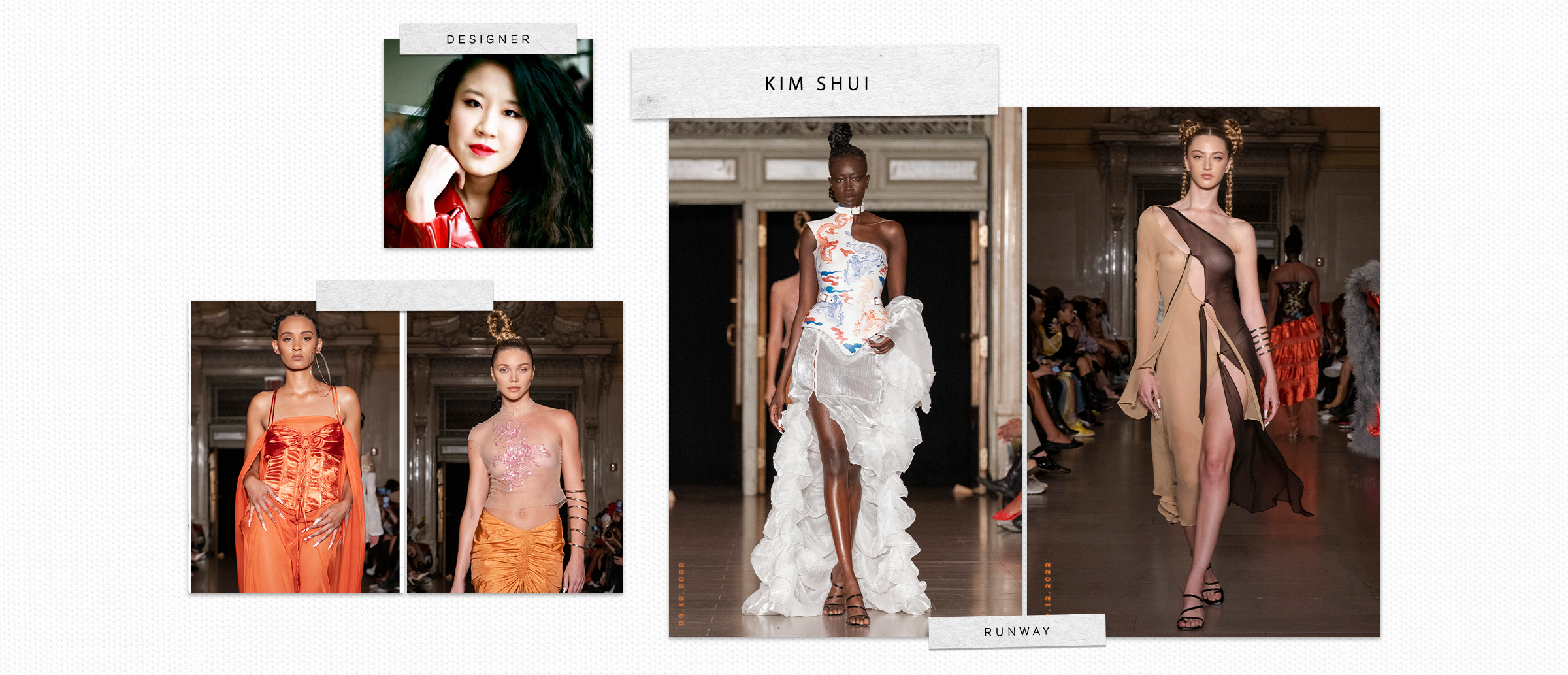
WHO: Kim Shui, Founder and Designer
For those who are unfamiliar with your work, how long have you been in the fashion industry?
KS: It has always been my dream to be a designer since I was in elementary school, but I didn’t always think I’d be one—in fact, I initially thought I’d be in finance after graduating from Duke University. But I always loved fashion, and eventually, I was compelled to start my namesake label in 2016. I put on my first show with VFiles runway and have been showing at NYFW ever since.
What compelled you to start your label? How has the brand evolved since its founding?
KS: With my collection, I wanted to be able to share the impact clothing made on me growing up and empower other women. The brand has evolved from statement outerwear pieces to incorporating more wearable separates and dresses, and I’m hoping to expand more.
What are the most common misconceptions about showing a collection at fashion week?
KS: I think that it’s just one designer’s work. It truly is a very collaborative process, and so many different perspectives and people are a part of it.
You showed your S/S 23 collection at New York Fashion Week this year. What was the prep experience like for you? And how long have you been preparing for this moment?
KS: I’ve been preparing for months. The last month has been very intense—finishing the collection and working on projects with our sponsors. But I’m excited to share this collection with the world.
Speaking of your collection, can you tell us a little about its inspiration? Are there any standout looks or trends you hope we’ll take away from this collection?
KS: This collection’s starting point was inspired by the four ancient beauties of China—Xi Shi, Wang Zhaojun, Diaochan, and Yang Guifei. We looked at mythological motifs, armor detailing, and traditional costumes of the Miao ethnic group in China.
We’re officially in the full swing of fall. Are there any standout staples or trends you’re excited about?
KS: I don’t love trends, but with the world reopening again, it’s been wonderful to witness women dressing up again and going out in my pieces. There’s something so special about knowing my work is a part of these moments of joy.
What do you hope your legacy will be as a designer?
KS: I hope I’ll have positively impacted women—empowering them to be confident in themselves and believe in themselves.
Shop Shui's work:
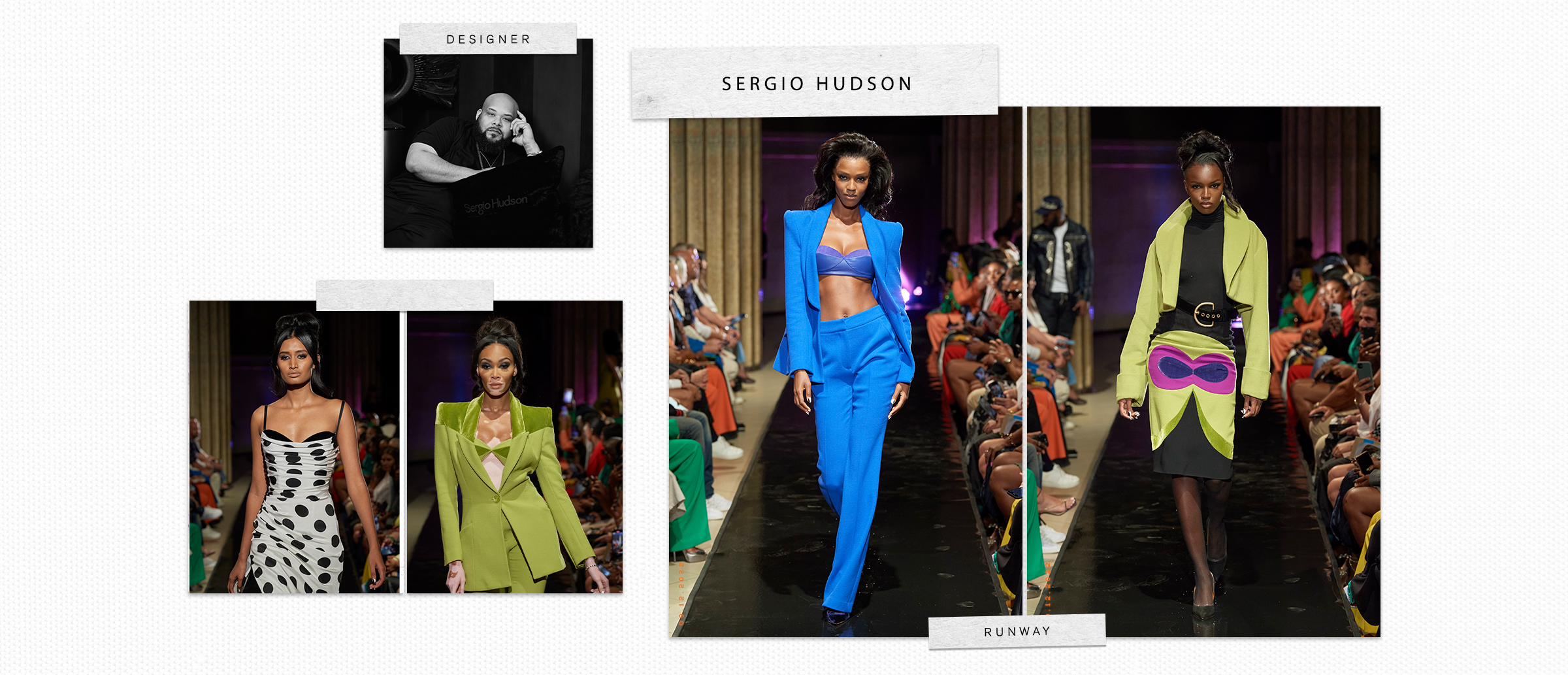
WHO: Sergio Hudson, Designer
For those who are unfamiliar with your work, how long have you been in the fashion industry?
SH: I've always wanted to be a designer from early childhood. I grew up with a very stylish mother, so an eye for style is in my DNA. For as long as I can remember, I've had an eye for color and fit, which compelled me to start my label in 2014.
How has the brand evolved since its founding?
SH: Since its founding, the brand has evolved so much on the business and creative sides. I've found my business partner, Inga Beckham, and I am so grateful to have them in my life. I've moved to Los Angeles and started showing at NYFW, which has been surreal. The collections have continued to grow over the past few years, and so have my retail partners, so I'm beyond grateful for how it's grown.
What are the most common misconceptions about showing a collection at fashion week?
SH: That it's nonstop partying when it's really nonstop work.
You showed your S/S 23 collection at New York Fashion Week this year. What was the prep experience like for you? And how long have you been preparing for this moment?
SH: We're at a pivotal moment in our brand growth, so I feel like I've been preparing for this moment my entire life. And I'm excited to share this collection, as we've gone seasonless, so I'm focused on creating pieces that can be a part of women's year-round wardrobe with this 10th collection.
Speaking of your collection, can you tell us a little about its inspiration? Are there any standout looks or trends you hope we'll take away from this collection?
SH: The collection is partly inspired by Prince and the New Power Generation era, so everything is sexy but clean and modern. I've tried to create a world as he did during that album run. I'm excited to show the coats we've made for this season, there are some new ideas we're trying, and I'm excited for the world to see them. There is also a silk crepe gown that I'm excited to share. We played with color, our traditional sexy cut, and some new color-blocking techniques.
We're officially in the full swing of fall. Are there any standout staples or trends you're excited about?
SH: I'm excited about seeing a lot of colors this fall, which you traditionally see more of in spring.
What do you hope your legacy will be as a designer?
SH: I hope my legacy will be to create clothing that will last for generations.
Shop Hudson's work:
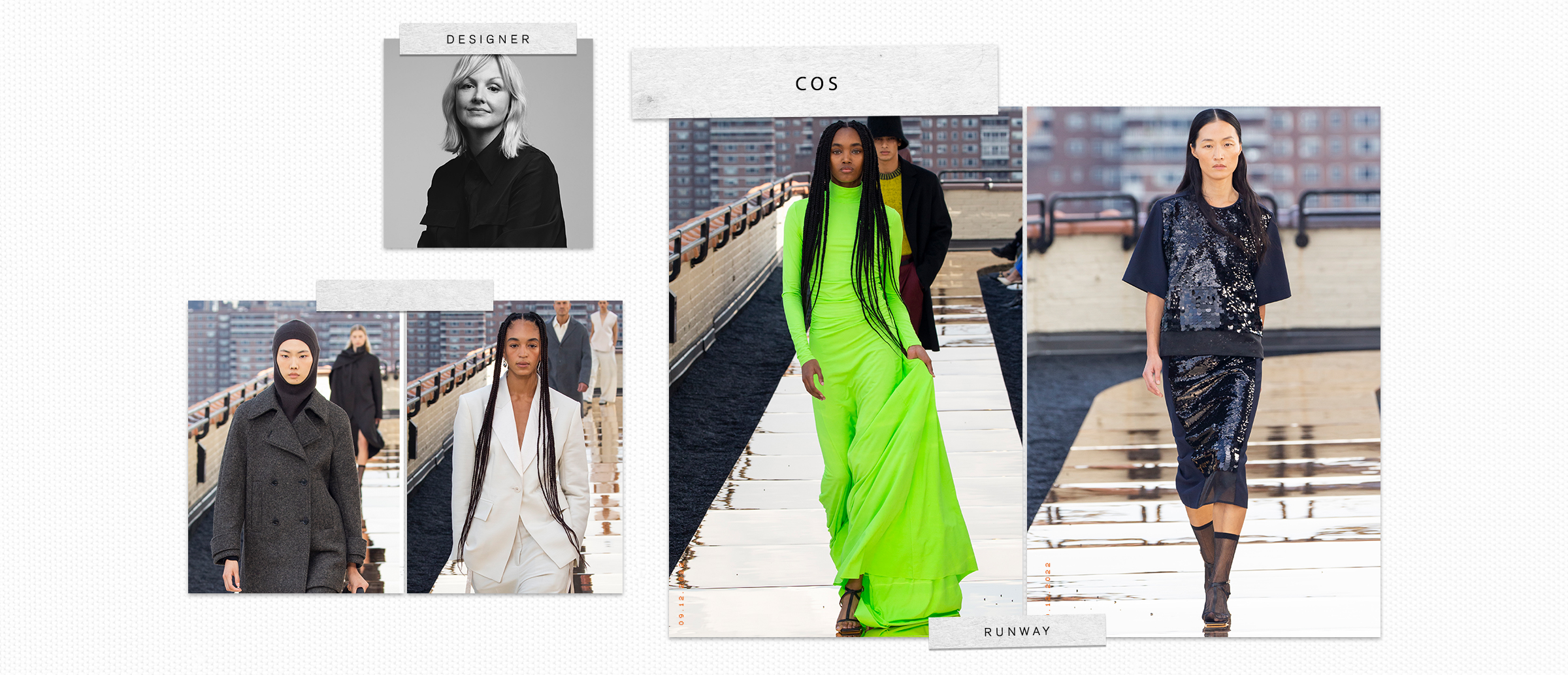
WHO: Karin Gustafsson, Design Director, COS
For those who are unfamiliar with your work, how long have you been in the fashion industry?
KG: From a young age, I knew I wanted to do something creative and started making garments before studying at the Royal College of Art in London. After my studies, I joined COS as an assistant designer before we launched the brand, and since then, I’ve held several roles at COS—I’ve been with the team since the beginning. In 2020, I took on a new role as design director, leading the creation and development of garment design across all categories to be as close as possible to the collection, and I have been in this role since.
How has the brand evolved since its founding?
KG: We continue to offer our COS signature styles and embrace elevated, refined wardrobe icons, but we also encourage the wearer to express their individuality—looks can be bold, colorful, playful, and versatile. In addition to this, we have developed the way we design with circularity in mind—92% of our new collection is made from more sustainable materials.
What are the most common misconceptions about showing a collection at fashion week?
KG: That the shows are exclusive to fashion insiders. We are delighted to see that fashion week is becoming more accessible thanks to technology; it’s truly a place for creativity and innovation to shine.
You showed your A/W 22 collection at New York Fashion Week this year. What was the prep experience like for you? And how long have you been preparing for this moment?
KG: The design process is always the same; no matter the season, COS pieces are designed to be timeless, and we start to prepare collections over a year in advance. We spend time researching—visiting art galleries, exhibitions, and cities and exploring color palettes and new materials. So many teams come together to create our shows, and we hope people come away feeling uplifted and inspired. We want it to be a true celebration of creativity.
Speaking of your collection, can you tell us a little about its inspiration? Are there any standout looks or trends you hope we’ll take away from this collection?
KG: This year, we are inspired by creativity and positivity and continue to champion individual expression and the juxtaposition of contrasts. Some of my favorite pieces are our womenswear utility-inspired, oversized coats in light-green and steel-blue standout pieces. I love our tailored suits paired with exaggerated accessories in mood-boosting hues. And finally, I feel our occasionwear pieces (which are made with 100% recycled sequins) further elevate the collection.
We’re officially in the full swing of fall. Are there any standout staples or trends you’re excited about?
KG: This NYFW, we are showing our autumn/winter collection, and it’s a season I always look forward to designing for. I particularly love to wear elegant tailoring and knee-high leather boots at this time of year. This autumn, we are focused on mood-boosting colors in a mix of orange, purple, pink, and green tones—with bright accessories made from innovative Desserto cactus leather. We also focus on knits in beautifully luxurious cashmere, including natural, undyed styles. We see both maxi and mini lengths and classic coats reimagined in tweed or leather.
What do you hope your legacy will be as a designer?
KG: Style, for me, goes beyond fashion. I hope to continue to present pieces that offer a sense of elevated timelessness. I want to create investment pieces that are joyfully rediscovered season after season and make the wearer feel good each time they’re worn.
Shop Gustafsson's work:
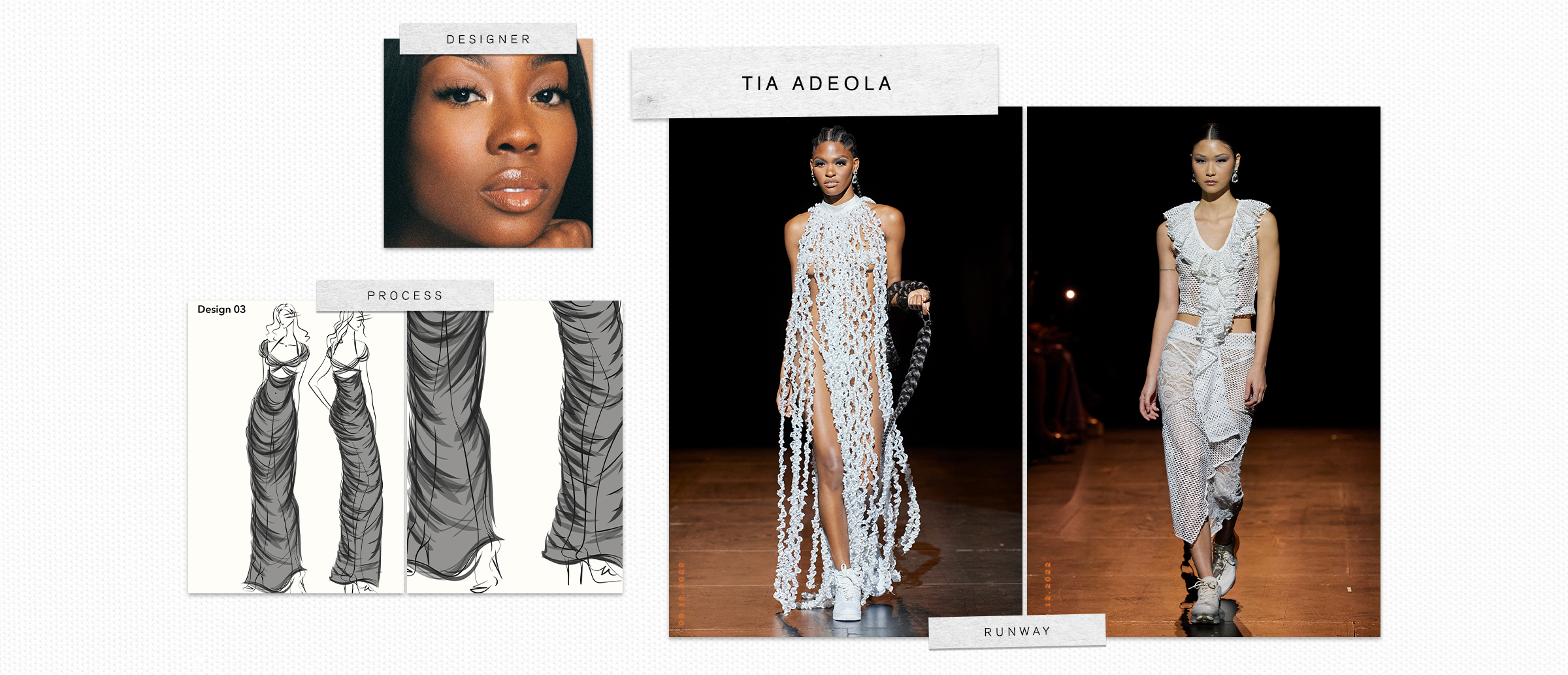
WHO: Tia Adeola, Designer
For those who are unfamiliar with your work, how long have you been in the fashion industry?
TA: I was born in Nigeria and grew up in London. But it wasn’t until I moved to New York City in 2016 to attend The New School that I began working in the industry. I launched my namesake label in my dorm room and haven’t looked back.
What compelled you to start your label? How has the brand evolved since its founding?
TA: I always knew I wanted to make clothes, as cliché as that may sound. I would make one or two items and share them on social media to see how my audience reacted. From that, my passion has grown into a business.
What are the most common misconceptions about showing a collection at fashion week?
TA: People don’t realize as the designer, I can only give 1% of my attention outside of designing a collection. It’s hard to explain to friends and family on the outside what that looks like when you’re prepping for a show.
You showed your S/S 23 collection at New York Fashion Week this year. What was the prep experience like for you? And how long have you been preparing for this moment?
TA: Prepping has been great. I live for the chaos and am excited to share my recent collection with the world.
Speaking of your collection, can you tell us a little about its inspiration? Are there any standout looks or trends you hope we’ll take away from this collection?
TA: You’ll see a return of my ruffle silhouette but more elevated and refined. I’ll also be dropping men’s hoodies, which I’m super excited about this season.
We’re officially in the full swing of fall. Are there any standout staples or trends you’re excited about?
TA: We’ve seen the overly pretty aesthetic (e.g., ruffles, pale pink, sheer chiffon, and feathers) trending for fall, and I feel my last F/W 22 collection plays into that trend well. I love a sheer moment or a few feathers.
What do you hope your legacy will be as a designer?
TA: That years later, people will be hunting and bidding for my clothes when I’m long gone. I hope I’m remembered for timeless pieces that surpass fleeting trends.
Shop Adeola's work:
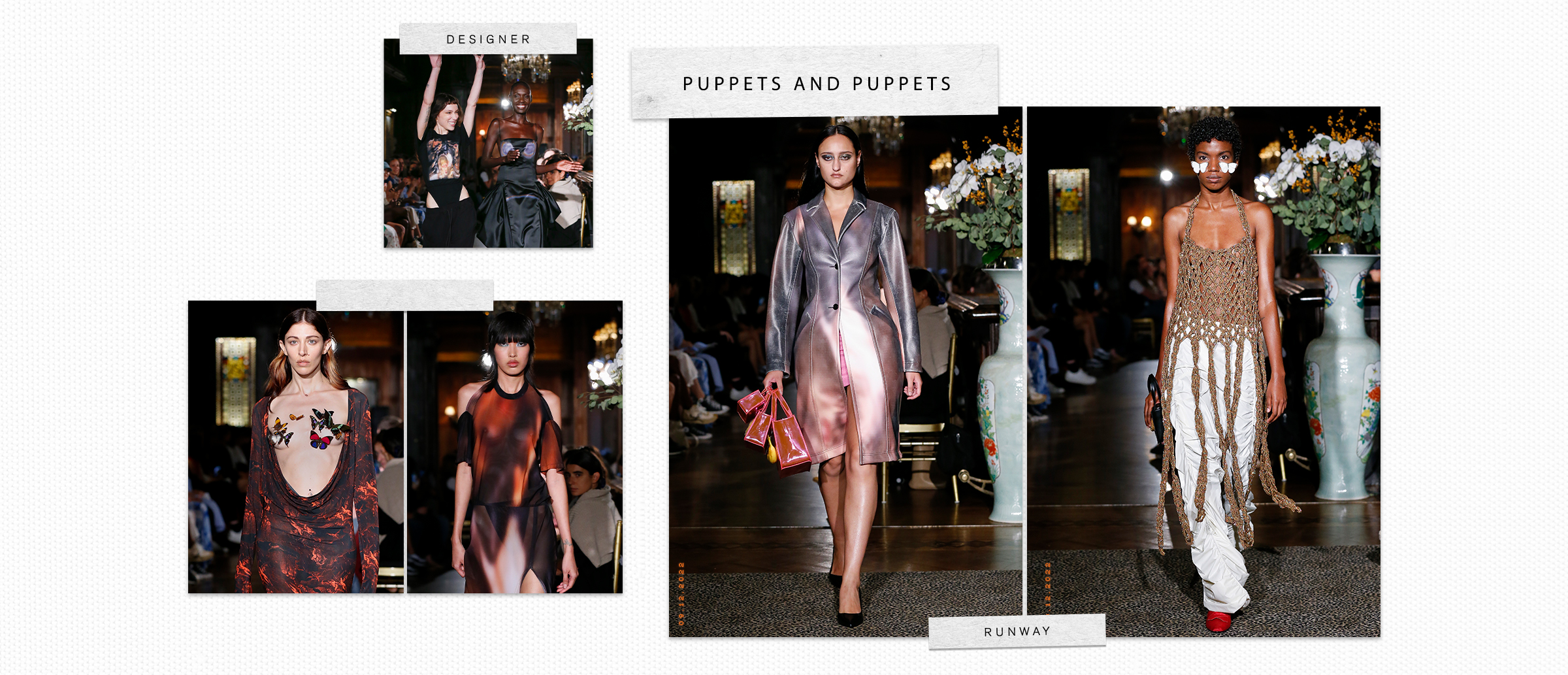
WHO: Carly Mark, Creative Director, Puppets and Puppets
For those who are unfamiliar with your work, how long have you been in the fashion industry?
CM: I presented my first collection in 2019 and have been a part of the industry since.
What compelled you to start your label? How has the brand evolved since its founding?
CM: I pivoted from an art career in 2019 because I was looking for a creative outlet that engaged with other people regularly. When I started the brand, I didn’t really know what I was doing; I guessed a lot! Puppets is now in production; it’s an actual running business.
What are the most common misconceptions about showing a collection at fashion week?
CM: That it’s glamorous when it’s actually tough! I love doing it, but it’s not for the weak—it’s messy, exhausting, and fun but incredibly difficult.
You showed your S/S 23 collection at New York Fashion Week this year. What was the prep experience like for you? And how long have you been preparing for this moment?
CM: We always start designing even before the previous collection has been released. This season, I worked on leveling everything up—expanding the bag program, tightening the design, and figuring out what I wanted to say. It’s been an intense but gratifying season.
Speaking of your collection, can you tell us a little about its inspiration? Are there any standout looks or trends you hope we’ll take away from this collection?
CM: The inspiration behind this collection was the film Eyes Wide Shut. I designed it for a sophisticated and sexy woman.
We’re officially in the full swing of fall. Are there any standout staples or trends you’re excited about?
CM: The cookie bag; I carry it everywhere I go. I also love the Puppets sweater—they’re easy, cool, and comfortable. I never get tired of cool wool pants because they pair well with a T-shirt.
What do you hope your legacy will be as a designer?
CM: Fearlessness.
Shop Mark's work:
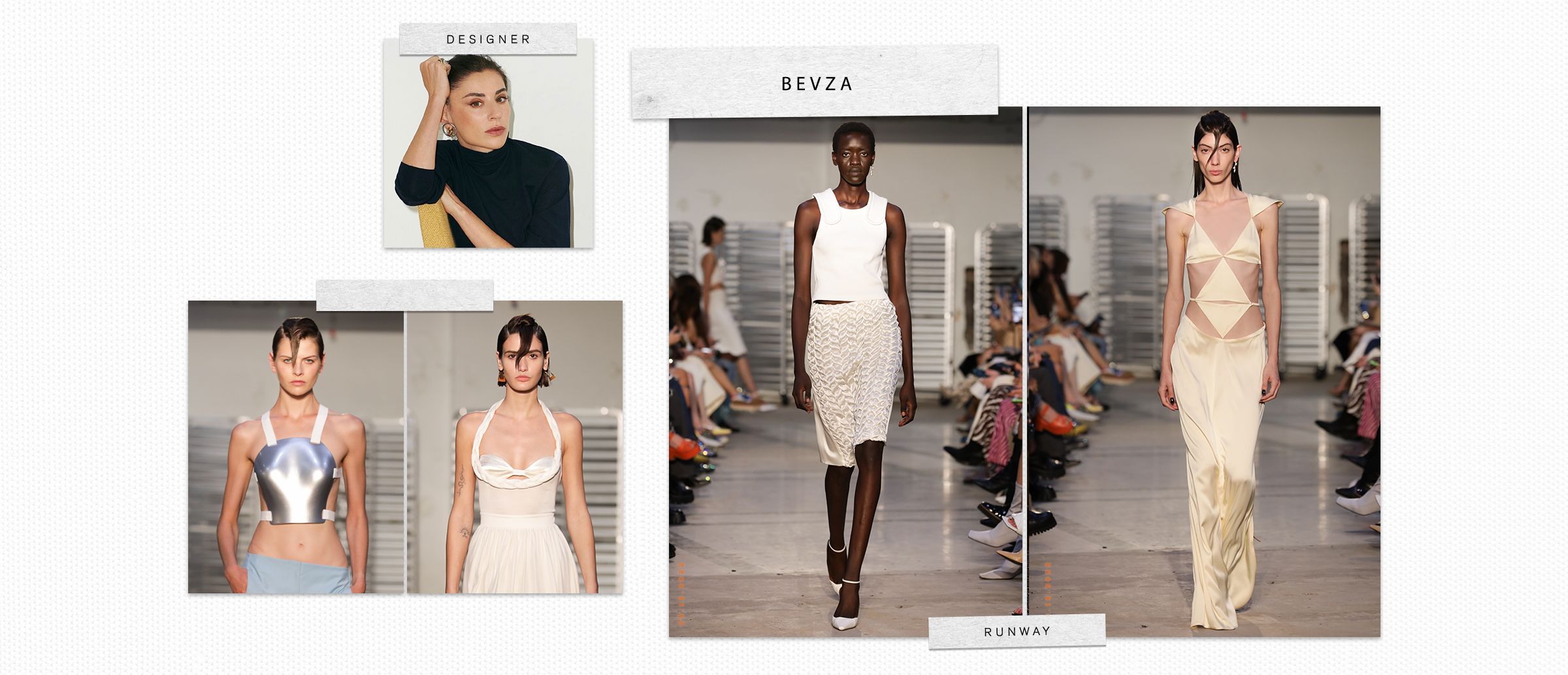
WHO: Svitlana Bevza, Designer of Bevza
For those who are unfamiliar with your work, how long have you been in the fashion industry?
SB: I started my small atelier in 2006 in Kyiv, Ukraine, so I've been in the industry for a while. But my first show in New York City was in 2017, and I've been showing ever since.
What compelled you to start your label? How has the brand evolved since its founding?
SB: The brand was a dream from early childhood; I always wanted to become a fashion designer. Since the first collection showed locally in Kyiv, the brand changed a lot because, in those days in Ukraine, we couldn't reach any international media, audiences, or buyers. We didn't know how the fashion world worked. Then I won a few international design competitions, went to my first showrooms and exhibitions, did the first show abroad, launched the first wholesale plan, launched the labels' work, and the scale changed hugely. We now operate like any other large-scale label in Europe and in the U.S.
What are the most common misconceptions about showing a collection at fashion week?
SB: There are certain things that designers show that are more conceptual and won't necessarily be for sale. They are pieces made specifically for the runway show.
You'll be showing your S/S 23 collection at New York Fashion Week this year. What has the prep experience been like for you? And how long have you been preparing for this moment?
SB: Prepping for a show is always an intense experience, but I'm beyond excited to be able to continue to create even in times of uncertainty.
Speaking of your collection, can you tell us a little about its inspiration? Are there any standout looks or trends you hope we'll take away from this collection?
SB: This collection is a visual voice from Ukraine today. Our Motherland is fertile, giving birth to the grain that feeds a lot of countries in the world, which is one of the main things we are fighting for. The spikelet is an important symbol of Ukraine and was taken as an inspiration and shown in jewelry pieces, the textures and details of the dresses, and the traditional cuts of the skirts that women used to wear in the fields while harvesting wheat.
We’re officially in the full swing of fall. Are there any standout staples or trends you’re excited about?
SB: I feel fall is all about opting for interesting fabrics—whether chiffon, leather, or in the context of my own F/W 22 collection, this fish-scale-like texture. I handmade a few dresses, blouses, and skirts with scissors from fabric waste to symbolize that we must care about the ocean environment. I imagined fish floating in clear water, so when the garments moved on the runway, they glowed like fish scales.
What do you hope your legacy will be as a designer?
SB: For me, it is imperative to create senses and stories, not just skirts and dresses. It is vital to share our culture with other nations and people. To tell the story of Ukraine and explain through collections why it's worth seeing and caring about. I want to show that it is very interesting to implement your roots into your work, but in a contemporary way, and make it look modern.
Shop Bevza's work:
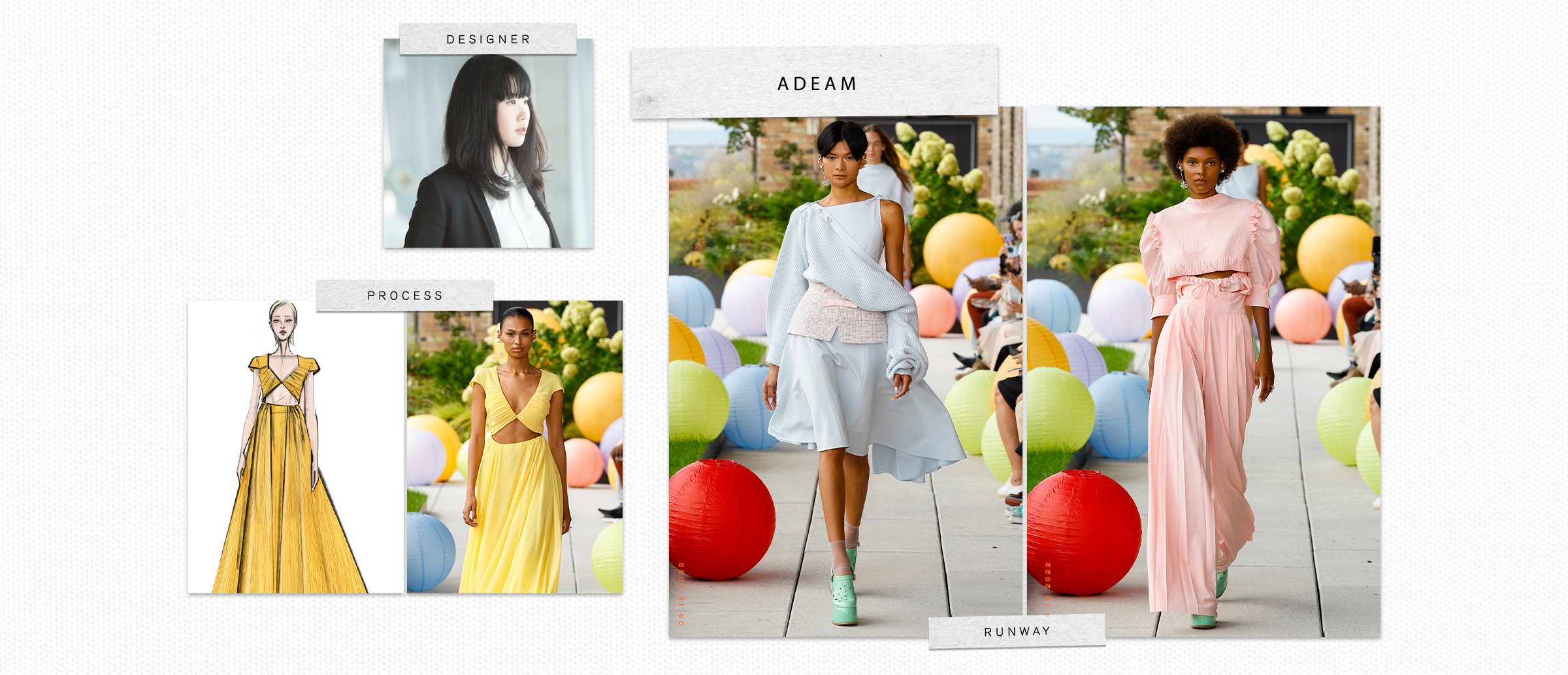
WHO: Hanako Maeda, CEO Creative Director of Adeam
For those who are unfamiliar with your work, how long have you been in the fashion industry?
HM: I launched Adeam in Japan in 2012, and we’re celebrating the 10-year anniversary of the brand this year. Fall 2014 was the first season we had our first runway show. Since then, we’ve continuously shown at New York Fashion Week and celebrated milestones such as designing the costumes for the New York City Ballet Fashion Gala in fall 2015 and collaborating with icons.
What compelled you to start your label?
HM: I grew up in the fashion industry, as my family runs the Japanese luxury fashion label Foxey, and they have been in the business for 45 years. When I went to Columbia University to study art history, I had the opportunity to work for different fashion internships at Vogue and 3.1 Phillip Lim. Through these experiences, I rediscovered my love of working in a creative environment, and it became my dream to start my own line one day.
How has the brand evolved since its founding?
HM: I’m incredibly honored by how much support we’ve received and how we’ve grown since I launched the brand. Adeam now has over 20 stockists worldwide and two stores in Tokyo, including the flagship store at Tokyo Midtown in Roppongi. In addition to expansion in distribution, we’ve built a strong celebrity following, regularly dressing names such as the former first lady Michelle Obama, Oprah Winfrey, and Anne Hathaway.
What are the most common misconceptions about showing a collection at fashion week?
HM: When I had my first presentation at New York Fashion Week, I thought that showing at fashion week would bring you immediate success—both for press and sales. However, I learned over the years that it takes time to grow as a brand, and you cannot achieve success overnight. I think it’s really helped to change my mindset and remember that slow and steady wins the race.
You showed your S/S 23 collection at New York Fashion Week this year. What was the prep experience like for you? And how long have you been preparing for this moment?
HM: I’m so excited to be back at New York Fashion Week after almost three years. The last time we had an in-person show was for fall 2020; we presented our collaboration with Naomi Osaka. During the pandemic, I worked out of Japan because of the travel restrictions in Asia. It was a great experience to focus on the creative process and work closely with our factories in Japan, but I also missed the energy of New York. As we are celebrating our 10-year anniversary, I knew we had to be back for this milestone.
Speaking of your collection, can you tell us a little about its inspiration? Are there any standout looks or trends you hope we’ll take away from this collection?
HM: My inspiration this season is Matsuri, the summertime festival in Japan. I wanted this collection to be a true celebration that we can share with everyone who has supported us over the years. The collection takes elements from traditional Japanese culture and modernizes them to fit the woman’s wardrobe today.
We’re officially in the full swing of fall. Are there any standout staples or trends you’re excited about?
HM: My favorites from our collection are the deconstructed shirting and the statement T-shirts that can be worn now, even on warmer days. I’m also excited about our gender-neutral collection, Adeam ICHI, that launched last year.
What do you hope your legacy will be as a designer?
HM: I hope to continue to create collections that inspire people and that will be loved globally, whether it’s in Tokyo or New York.
Shop Maeda's work:
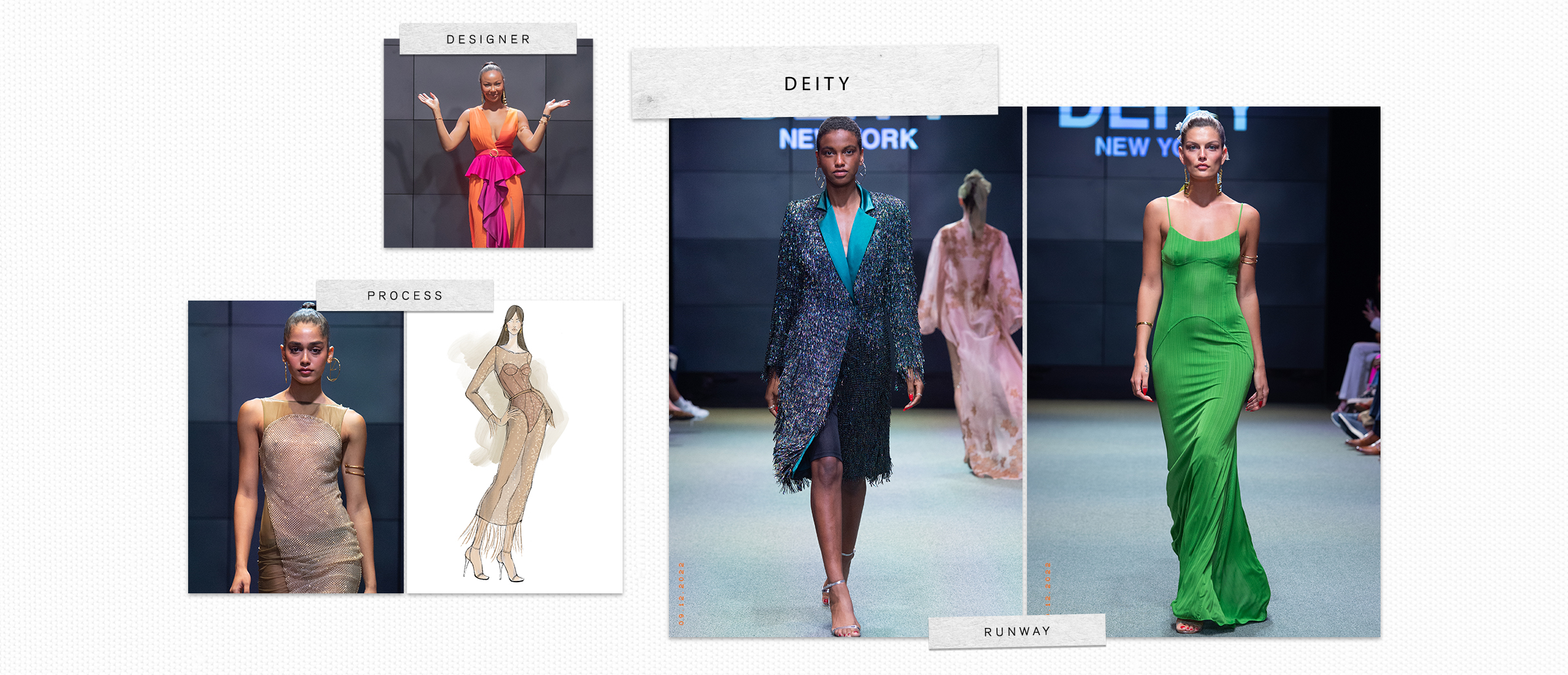
WHO: Renee Bishop, Creative Director and CEO of Deity
For those who are unfamiliar with your work, how long have you been in the fashion industry?
RB: I have been in the industry working as a stylist in NYC since 2017 and launched my label, Deity New York, in March 2020.
What compelled you to start your label? How has the brand evolved since its founding?
RB: I want to contribute my vision to the industry and bring back my interpretations of the classics with an unapologetic spin, which is why I founded Deity. Since then, we launched our first resortwear 2022 collection this season, which was very exciting to be able to branch out from our normal two seasons of F/W and S/S and to be able to introduce more custom prints and bold colors.
What are the most common misconceptions about showing a collection at fashion week?
RB: Fashion shows are hard work and long hours. As designers, we put all of our hard work and creativity all out on the line. So much more than just an amazing collection is needed for a successful show. There are many moving parts, such as castings, inviting the right people, finding music, choosing the right venue, finding glam and stylists, securing the perfect venue, and having the right team to make everything happen; it's a lot of pressure. However, diamonds are made under pressure, and getting to that shining moment requires it.
You showed your S/S 23 collection at New York Fashion Week this year. What was the prep experience like for you? And how long have you been preparing for this moment?
RB: For this show, we got started in July! We created a stellar collection in less than two months. Incredibly proud of my team and couldn’t be more excited to show the magnitude of our creativity and hard work. The proof is in the finished work, and it’s been an adventure but only strengthens my love for creating something out of nothing each season
Speaking of your collection, can you tell us a little about its inspiration? Are there any standout looks or trends you hope we’ll take away from this collection?
RB: This collection is inspired by one of my favorite female figures in mythology, Lilith. I am always inspired by history and real women (whether real or a folktale). She was the first wife of Adam (from the Garden of Eden folktale) and the first female figure in history that represented independence as a woman and rebellion. Whether you're religious or not, as modern-day women, we can all relate to Lilith in some way. In terms of standout looks, I love lingerie you can tastefully wear outside! We are bringing lingerie to the streets this season. Denim and lace, mesh, and crystal fishnet fabrics are all in Lilith’s spirit and a huge part of my collection.
We’re officially in the full swing of fall. Are there any standout staples or trends you’re excited about?
RB: I love wearing white in the fall/winter; forget everything you were taught about the "no white after Labor Day” rule. This fall collection is for the woman who dares to challenge tradition, and being able to create a spin on classic suiting (our white blazer with bustier elements and matching white skinny-leg pants) is something I’m excited about sharing for fall and hope will become the look of the season.
What do you hope your legacy will be as a designer?
RB: I hope my work brings out the divine nature in every woman and that our classic silhouettes dare to challenge tradition.
Shop Bishop's work:
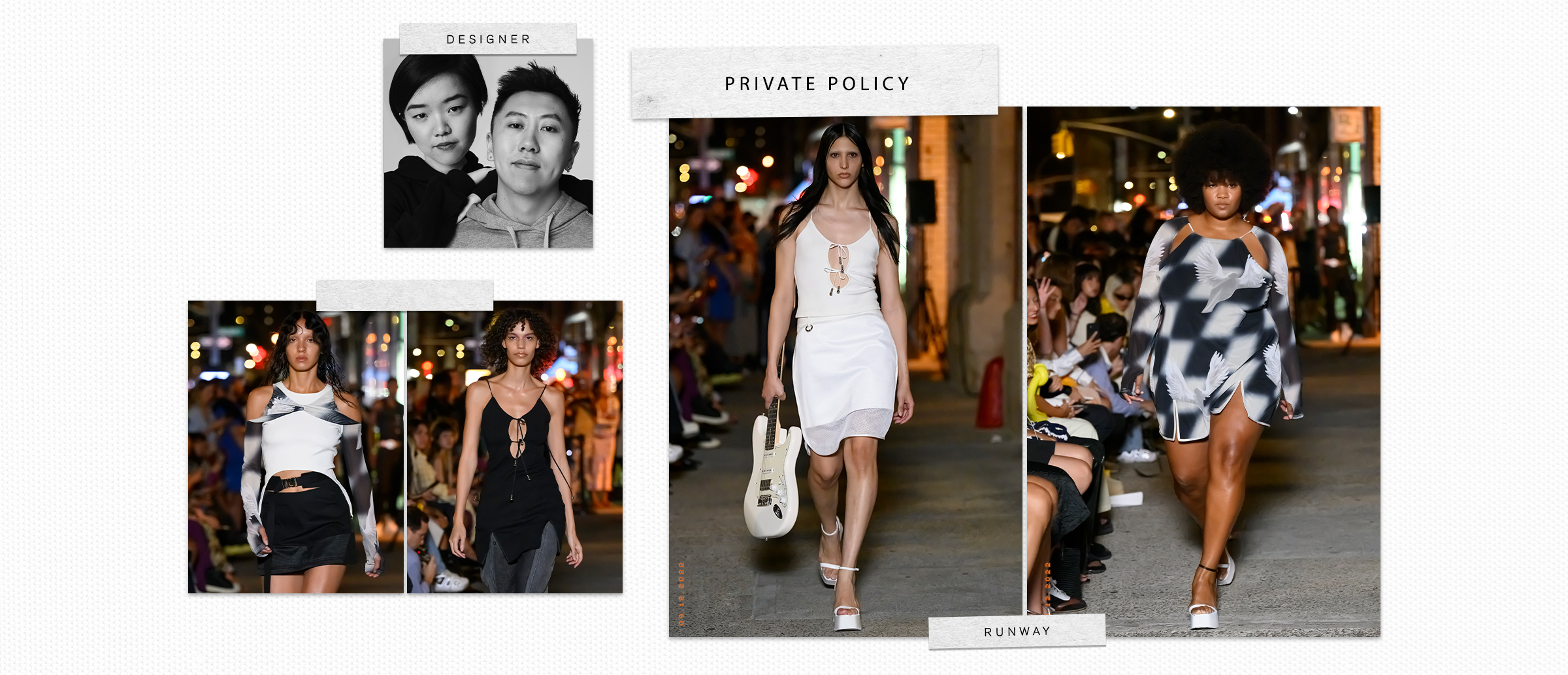
WHO: Siying Qu, Co-founder and Creative Director at Private Policy New York
For those who are unfamiliar with your work, how long have you been in the fashion industry?
SQ: After graduating from Parsons in 2015, my friend and fellow co-founder, Haoran Li, and I set out to found our label. We’ve been in the industry for over six years and have been steadily building the brand.
What compelled you to start your label? How has the brand evolved since its founding?
SQ: I started the label with Haoran because we have something different to express and show the world how fashion can empower freedom. The brand began by shocking people with the concept of talking about social topics directly and being gender-free clothing; now, we prove style can have more purpose and have Gen Z communities get our message 100%.
What are the most common misconceptions about showing a collection at fashion week?
SQ: A common misconception is that it is only about the runway show, but the process matters, behind the scene matters, and human interaction matters. We see it as a super-entertaining business meeting meant for serious topics and crazy parties.
You showed your S/S 23 collection at New York Fashion Week this year. What was the prepping experience like for you? And how long have you been preparing for this moment?
SQ: I envisioned a unique experience that involves cross-industry collaborations and welcomes all to experience. Because of the special approach, I started planning in April. Meeting with Ruoyi at Chop Suey Club, looking for an epic NYC hidden party venue, like we used to pre-COVID. We spent months trying to find this fantasy venue, Firehouse Engine 31, which is more than 100 years old—talking with Jess Hu about the show soundtrack, imagining music as a vessel to hold people together. Then collaborating with Quincy to have his song in the finale. We had so many unforgettable moments with Jorden Bickham at styling, Christian Meshesha at casting, and Gia Kuan with the magic of gathering our communities for a memorable show.
Speaking of your collection, can you tell us a little about its inspiration? Are there any standout looks or trends you hope we’ll take away from this collection?
SQ: The collection theme centers around peace; we went on a journey of capturing it, from the origin of the dove symbolizing peace in Noah’s Ark story to the wild imagination of nightclubs as the modern "Ark,” where all animals and humans can escape to. This season is all about hopeful and enjoyable colors and blissful, gradient, airy prints serving gender fluidity versions of workwear.
We’re officially in the full swing of fall. Are there any standout staples or trends you’re excited about?
SQ: I cannot wait to pull out some knitwear, a comfy mohair sweater in great colors, with some knit pants with some fuzzy shoes. I think being softly bold is the vibe this fall and winter.
What do you hope your legacy will be as a designer?
SQ: To be remembered as the brand that made them feel free. Free of gender labels, free to express their minds, and free to make their own rules.
Shop Qu's work:
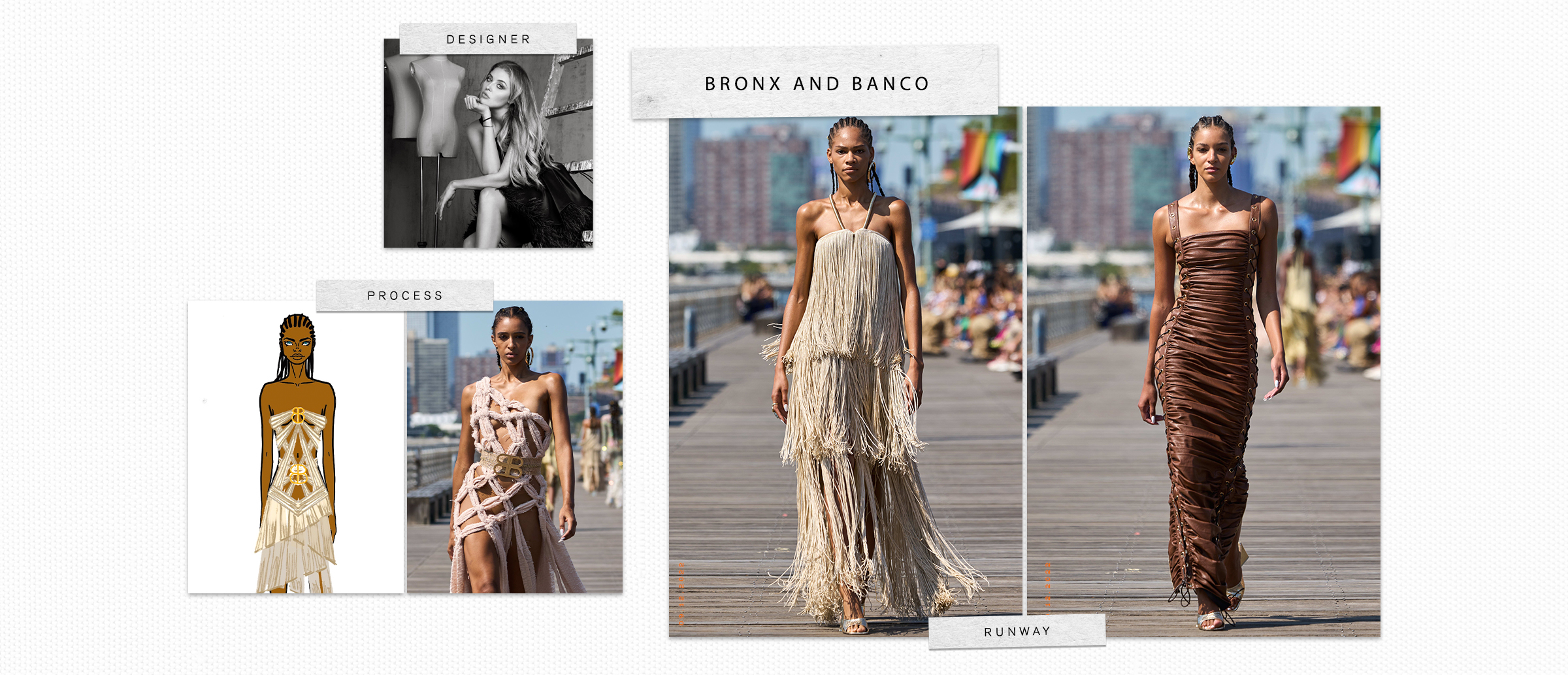
WHO: Natalie De’Banco, Designer, Bronx and Banco
For those who are unfamiliar with your work, how long have you been in the fashion industry?
ND: I grew up in (and around) the fashion industry, so it was something I always loved and knew I wanted to be a part of. Eventually, it led me to found Bronx and Banco in 2009, and I have been designing since.
What compelled you to start your label? How has the brand evolved since its founding?
ND: My tremendous love for dressing up led me to found Bronx and Banco. And I’m grateful for how much we’ve grown since our founding. We moved the business to New York from Australia in 2017, and since then, I’ve continued participating in NYFW. We are stocked in almost every major department store across the U.S. and expanding into new categories, so it’s wild to see how we’ve evolved.
What are the most common misconceptions about showing a collection at fashion week?
ND: That fashion week is a lot of partying, drinking, and celebrating (which it can be), but mostly, it’s a lot of hard work and sleepless nights.
You showed your S/S 23 collection at New York Fashion Week this year. What was the prep experience like for you? And how long have you been preparing for this moment?
ND: This S/S 23 collection is inspired by the modern-day safari. The idea for this collection has been brewing since I took a trip to South Africa a few years ago. I have been sitting with this experience, wanting to translate it into a collection—it has been an ongoing process for three years now.
Speaking of your collection, can you tell us a little about its inspiration? Are there any standout looks or trends you hope we’ll take away from this collection?
ND: This season, we focused on using nontraditional fabrications, many hand-woven crochets, and metals. We’re expanding from ready-to-wear to athleisure, accessories, and even menswear.
We’re officially in the full swing of fall. Are there any standout staples or trends you’re excited about?
ND: There are so many trends happening right now that I’m excited about for fall. I love the tailored oversize blazer look and the rise of vegan leather. I’ve also been seeing a lot of statement accessories like belts, sunglasses, and jewelry, which are a personal favorite of mine.
What do you hope your legacy will be as a designer?
ND: I hope my work encourages women to be comfortable in what they wear—to show some skin if you want to, but don’t if you don’t want to. I’m of the mindset that more is more, and I want to empower women not to be afraid to stand out in the crowd. You deserve to be the center of attention, and I’m hoping what I design allows you to be just that.
Shop De'Banco's work:
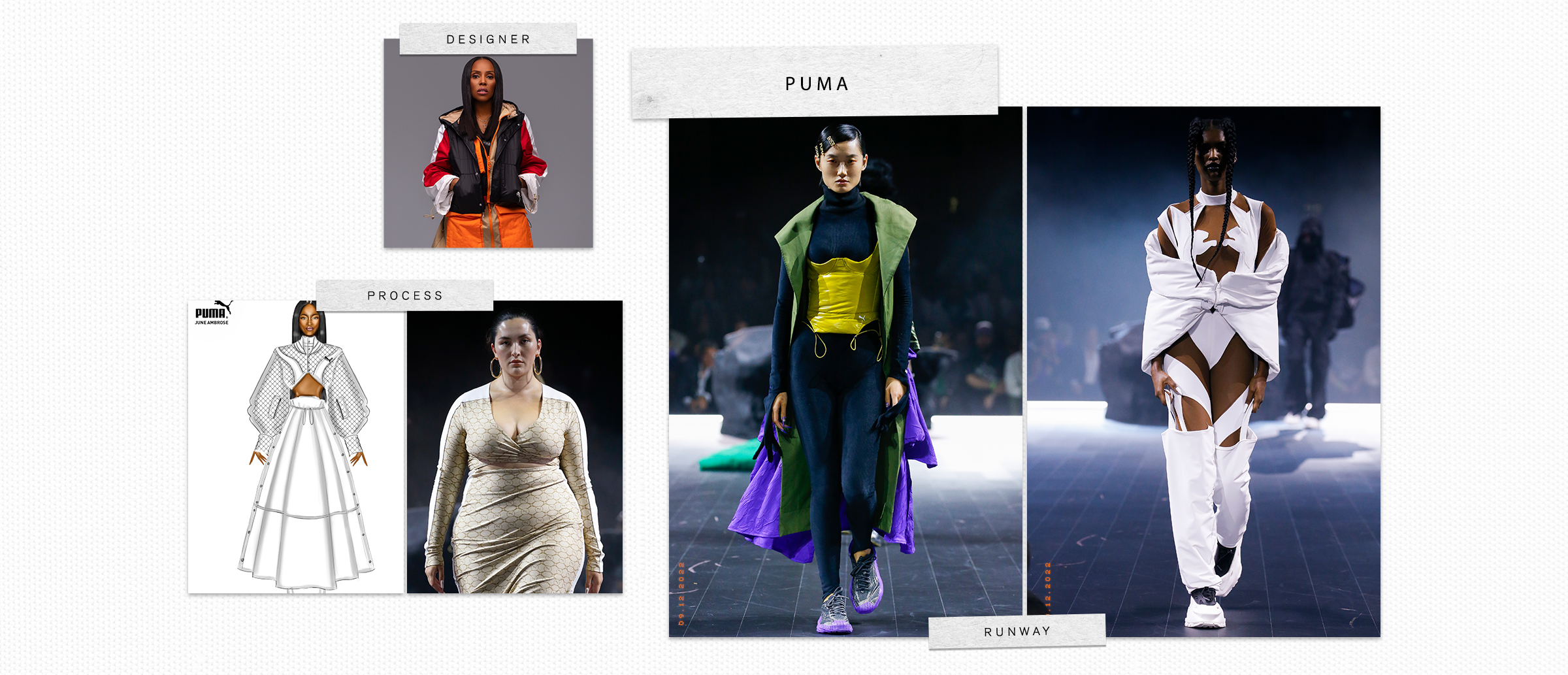
WHO: June Ambrose, Creative Director and Designer at Puma
For those who are unfamiliar with your work, how long have you been in the fashion industry?
I've been in the industry for over 25 years, working as a stylist, costume designer, and most recently, the creative director and designer for Puma.
What compelled you to join Puma? What are you doing to evolve the brand?
JA: Before I started working with Puma, I was a fan of the brand. They have a long, rich history embedded in hip-hop. Jay-Z and Emory Jones approached me with this opportunity at an exciting time because it was the launch of Puma's women's basketball division, and I was eager to conceptualize that. I'm continuing to push the limits of sport style, utilizing their iconic sign-offs and reimagining them through a new stylistic lens.
What are the most common misconceptions about showing a collection at fashion week?
JA: That there's not room for everyone in this space. So many people have the opportunity to show up these days. It fills my heart to see the next generation of young talent coming up with support from seasoned veterans.
You showed your S/S 23 collection at New York Fashion Week this year. What was the prep experience like for you? And how long have you been preparing for this moment?
JA: Six pieces from my first co-branded collection with Puma will be debuting as an S/S 23 collection, but the show itself includes multiple collections that are current and upcoming from designers like Dapper Dan, AC Milan, Koché, Palomo, PAM, and MMQ. We had a concise window of time to prep, but it's been great being able to support our city, especially after the pandemic. We're producing samples here, working with local sewers, and for the show, so it's very much supporting the fashion community in the city.
Speaking of your collection, can you tell us a little about its inspiration? Are there any standout looks or trends you hope we'll take away from this collection?
JA: Speaking to my co-branded collab, I had a Stan Lee moment and paid homage to myself a bit, so that will be fun to share. But on the whole, there's a lot of wit in the collection's looks. I think fashion can get very serious, and it's apparent in this show that I didn't do that; I'm allowing the consumer to be more imaginative and take things out of context to make them their own. There are a lot of different ideas that can be pulled from this show, hopefully making you want to have fun while playing in this sportswear space.
We’re officially in the full swing of fall. Are there any standout staples or trends you’re excited about?
JA: I'm excited about deep colors like merlots for fall—we love a colorful moment! Also, I'll always love an oversize T-shirt and hoodie; it's a perennial favorite for fall.
What do you hope your legacy will be as a designer?
JA: I hope people take away that I lived my life like a sport and wasn't afraid to be creatively curious and playful. Also, through my work, I want to normalize eccentricity and people dreaming about how fashion can make them feel versus just wearing clothes. Eccentricity is my personality, and I want to normalize expression of that as part of your style.
Shop Ambrose's work:
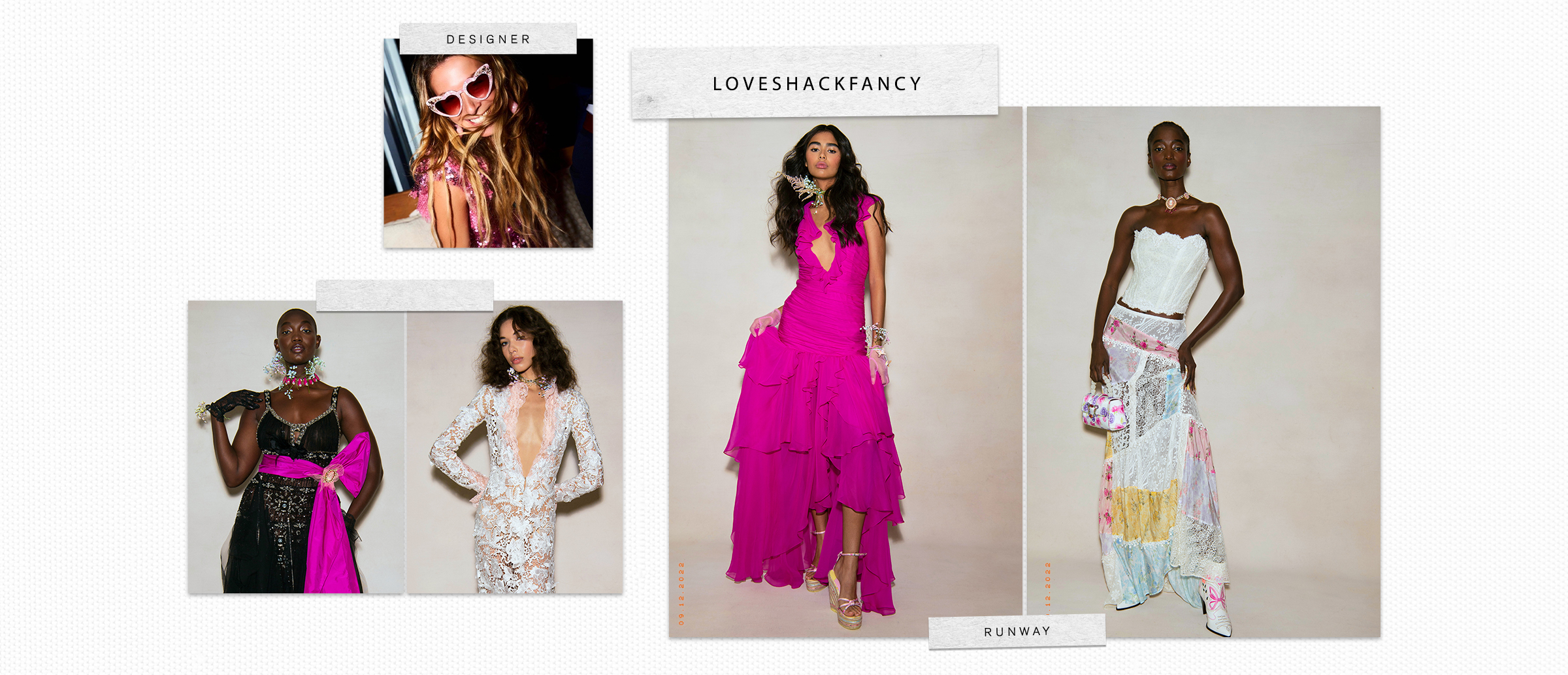
WHO: Rebecca Hessel Cohen, Founder and Creative Director of LoveShackFancy
For those who are unfamiliar with your work, how long have you been in the fashion industry?
RHC: I have been in the fashion industry for what feels like forever. I founded LoveShackFancy in 2013, but before LoveShack, I worked as a fashion editor at several magazines. I always have had a passion for storytelling, which led to my career in editorial, but I’ve since brought that storytelling passion with me in creating my brand.
What compelled you to start your label? How has the brand evolved since its founding?
RHC: I never set out to start a fashion line; it began when I designed my bridesmaid dresses. I wanted a dress that looked good on everyone, from the beach to the ballroom, and would be your best dancing partner. I then realized there was a gap in the industry as bridesmaid dresses were a "one-time-only” buy.
What are the most common misconceptions about showing a collection at fashion week?
RHC: A common misconception about showing a collection at fashion week is that it isn’t just about the influencers, press, and buyers. We also include our most loved customers, biggest fans, and collaborators. We even had girls from all the local schools peeking through the museum gates after posting flyers all over the Upper East Side.
You showed your S/S 23 collection at New York Fashion Week this year. What was the prep experience like for you? And how long have you been preparing for this moment?
RHC: Conceptually, we’ve been working on this collection since the spring. We sampled the collection internationally and created some unique pieces locally. We work with amazing partners to help us pull this moment together—from the location, set, and design to casting, music, and choreography, we have been planning this moment since before the summer.
Speaking of your collection, can you tell us a little about its inspiration? Are there any standout looks or trends you hope we’ll take away from this collection?
RHC: For our spring 2023 collection, we were inspired by New York City. This collection blends romanticism and modernity by combining femininity with the excitement and edge that this city brings. Standout looks include taffeta bow minis, ruffle sets, tweed power suitings, and elegant slip dresses with floral appliqués.
We’re officially in full swing of fall. Are there any standout staples or trends you’re excited about?
RHC: For this fall, we’re really looking forward to getting back to the city and channeling all that empowering energy New York brings, so there’s a big focus on suiting and then a fun party looks like flirty minis and maxis for going out with your girls.
What do you hope your legacy will be as a designer?
RHC: I hope that my legacy will leave girls wanting to embrace their femininity truly and that more is more. Have fun when dressing up, don’t be afraid to mix colors and prints, and be daring!
Shop Hessel Cohen's work:
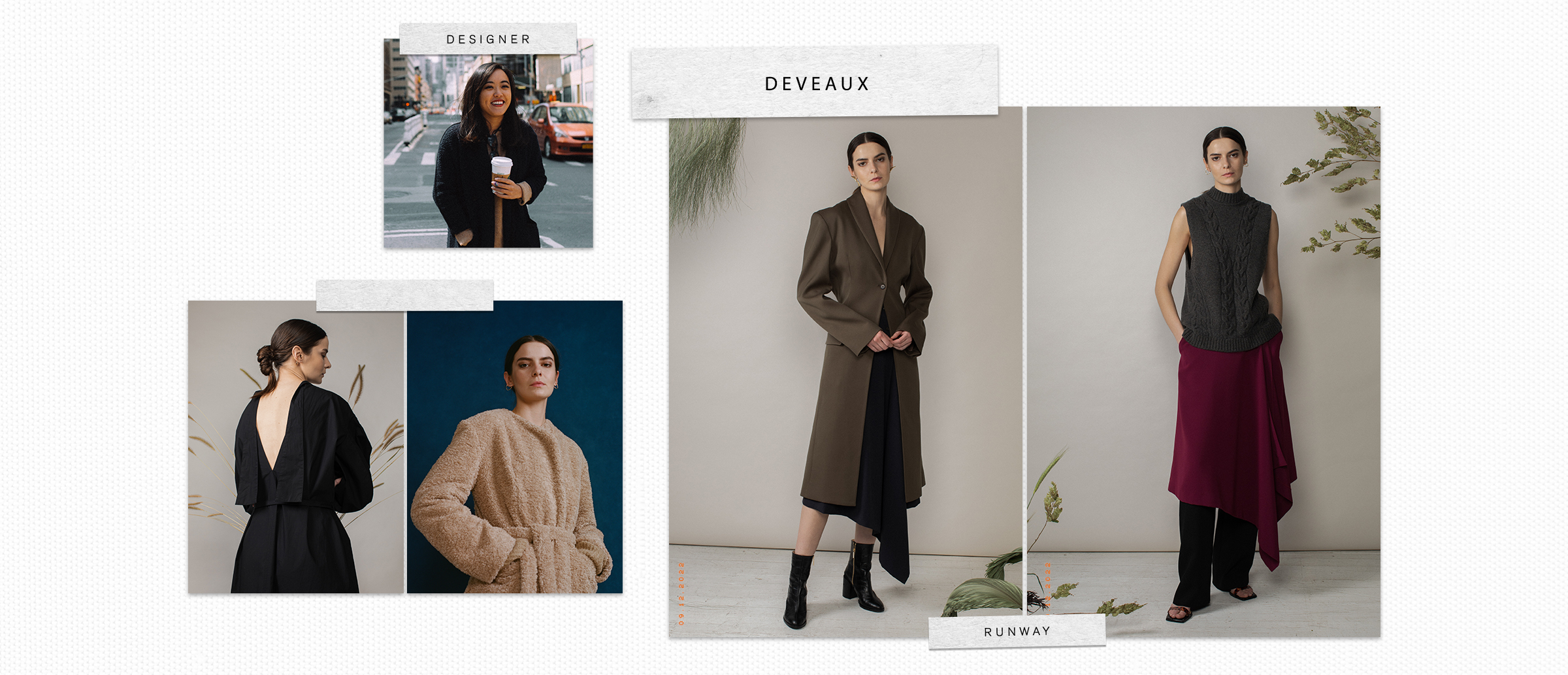
WHO: Andrea Tsao, Co-Founder of Deveaux
For those who are unfamiliar with your work, how long have you been in the fashion industry?
AT: I've been working in fashion for about 10 years and joined the founding team of Deveaux back in 2016.
What compelled you to join Deveaux? How has the brand evolved since its founding?
AT: I was approached to be head designer of Deveaux in 2016 by the owners of an incredible multi-brand menswear store called Carson Street, which is sadly closed now. The brand has had many chapters. Initially, it was a very tailored, super-luxe menswear-only collection, attempting to be the more classic American answer to streetwear. In 2019, we launched womenswear with a huge bang, only to have COVID come one year later. We still stick to many of Deveaux's original pillars, which to me stand for utilitarianism, wardrobing, and the kind of thoughtfully considered, interesting pieces. We've had a lot of detours along the way, but I'm happy to say that with our recent new rebrand and our return to the runway, we're taking many of our original founding principles and pushing them more creatively.
What are the most common misconceptions about showing a collection at fashion week?
AT: That it is glamorous, when in reality, anything can happen. No matter how ridiculous or how much you think you have prepared for it, making a show come to life is always harder than it appears.
You'll be showing your S/S 23 collection at New York Fashion Week this year. What has the prep experience been like for you? And how long have you been preparing for this moment?
AT: My team and I have been gearing up for this for a long time. We haven't shown at NYFW since 2019 and are using the S/S 23 runway show to kick off a new chapter for the brand. It's exciting, but it's also terrifying.
Speaking of your collection, can you tell us a little about its inspiration? Are there any standout looks or trends you hope we’ll take away from this collection?
AT: This season is inspired by the revitalized New York summer we just experienced. The energy of the city, the unbearably hot weather, the feeling of renewal after a summer rain shower, and the frequency with which we all vibrate while we collectively interact with each other is where I drew inspiration from.
We’re officially in the full swing of fall. Are there any standout staples or trends you’re excited about?
AT: As both a business owner and a new mom, a good sweater and a well-fitting pair of pants are the holy grail for all the demands of my day-to-day life. I love our crochet sweaters because they're so much more interesting than a classic sweater and can pair back with utility pants or more tailored trousers. Maybe it's my menswear background, but I also still love a suit jacket.
What do you hope your legacy will be as a brand?
AT: I hope that we can be known for specialty, articulate staples in the industry. I want any piece from Deveaux to be your favorite piece in your wardrobe that can be worn daily.
Shop Tsao's work:
Next up, I Just Got Back From Oslo, and Now I'm Obsessed With These 7 Norwegian Brands
Opening Image: Courtesy of Tia Adeola; Imaxtree/Kim Shui; Courtesy of Sergio Hudson; Jonas Gustavsson for Fe Noel; Courtesy of Deity
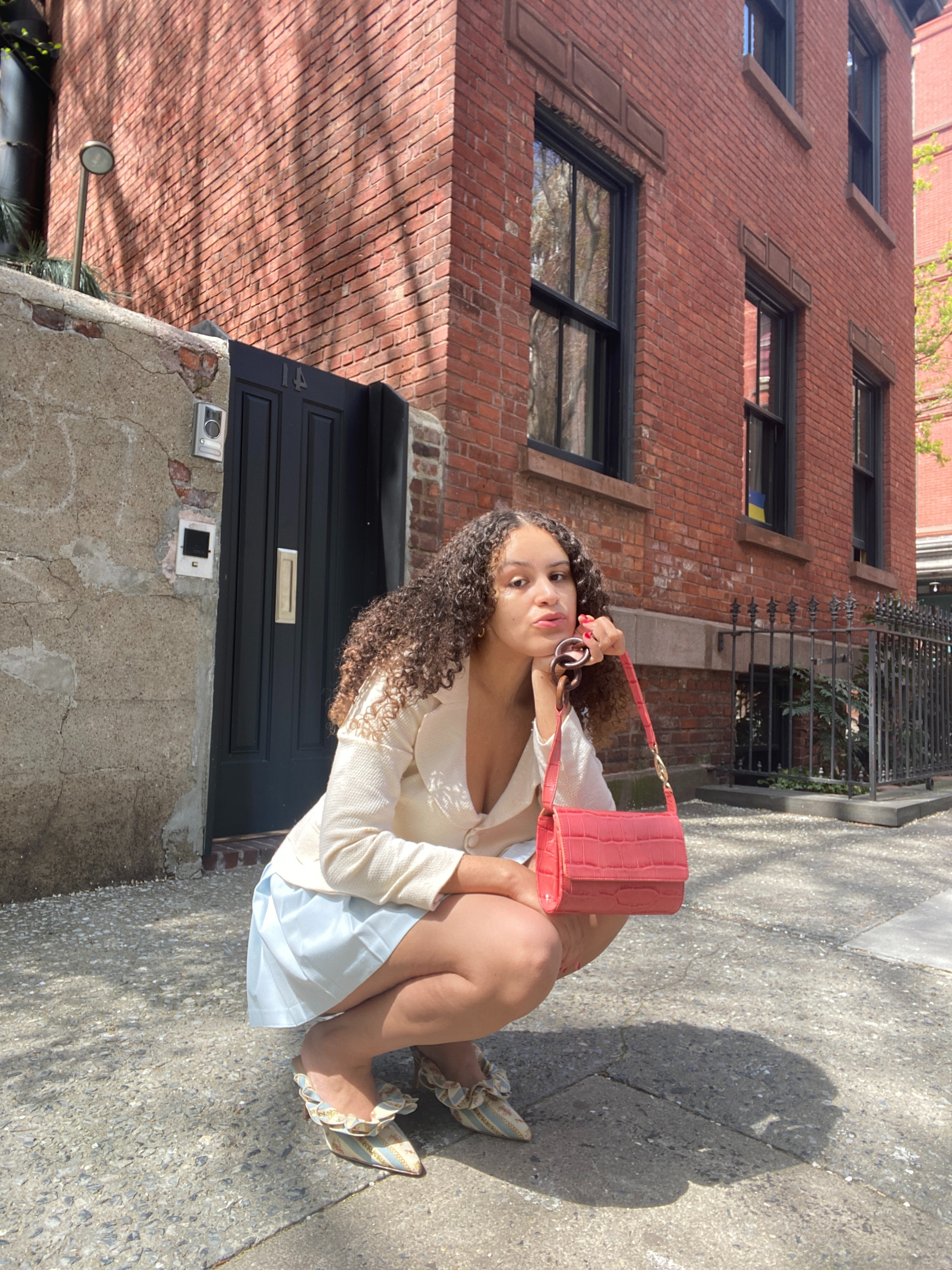
Jasmine Fox-Suliaman is a freelance writer and editor living in New York City. What began as a pastime (blogging on Tumblr) transformed into a lifelong passion for unveiling the connection between fashion and culture on the internet and in real life. Over the last decade, she's melded her extensive edit and social background to various on-staff positions at Who What Wear, MyDomaine, and Byrdie. More recently, she’s become a freelance contributor to other publications including Vogue, Editorialist, and The Cut. Off the clock, you can find her clutching her cell phone as she's constantly scrolling through TikTok and The RealReal, in search of the next cool thing.
